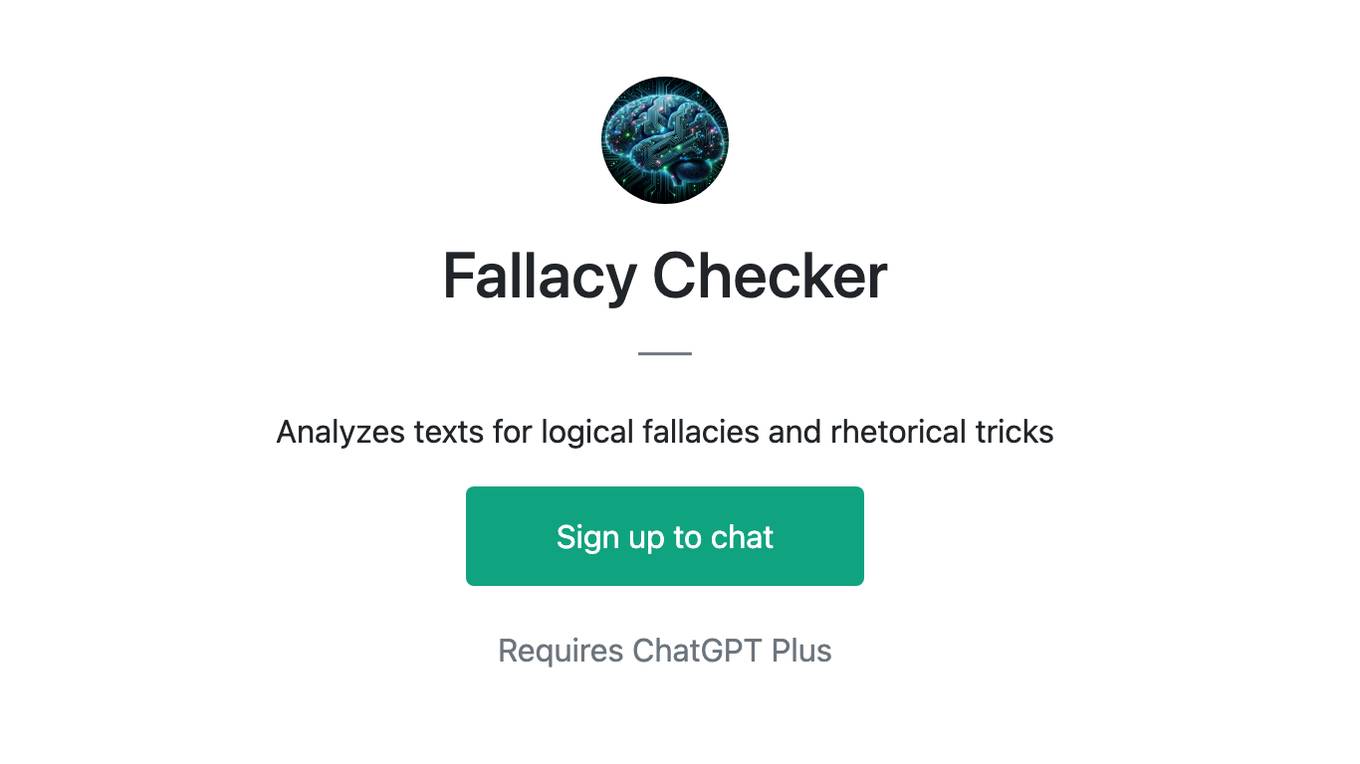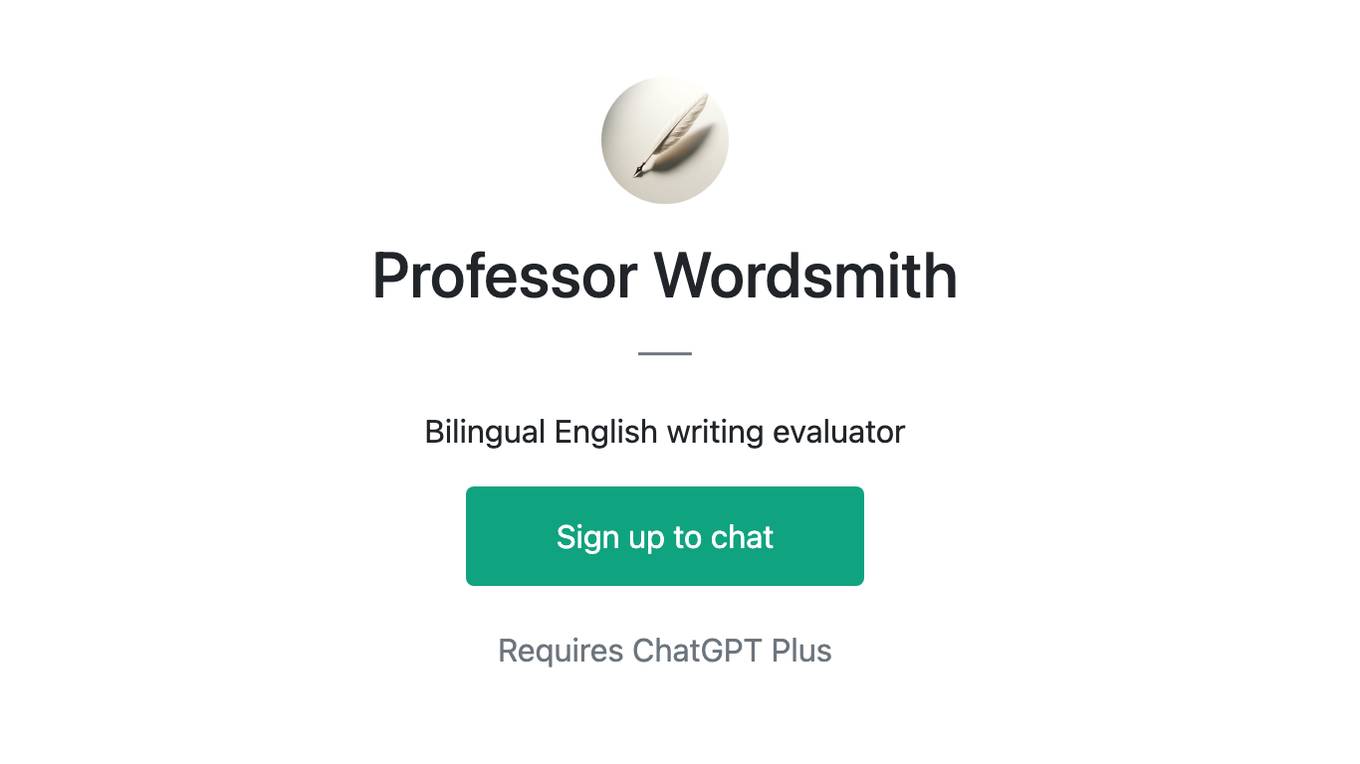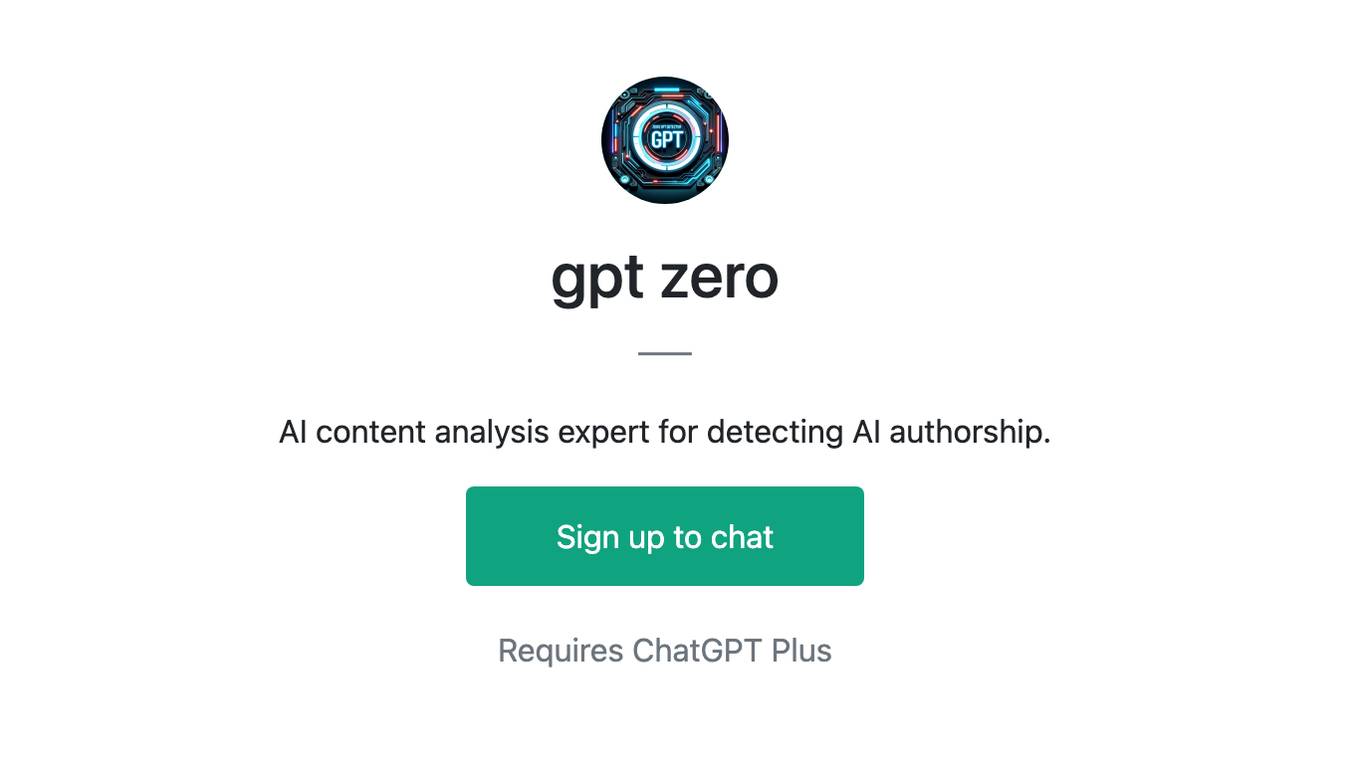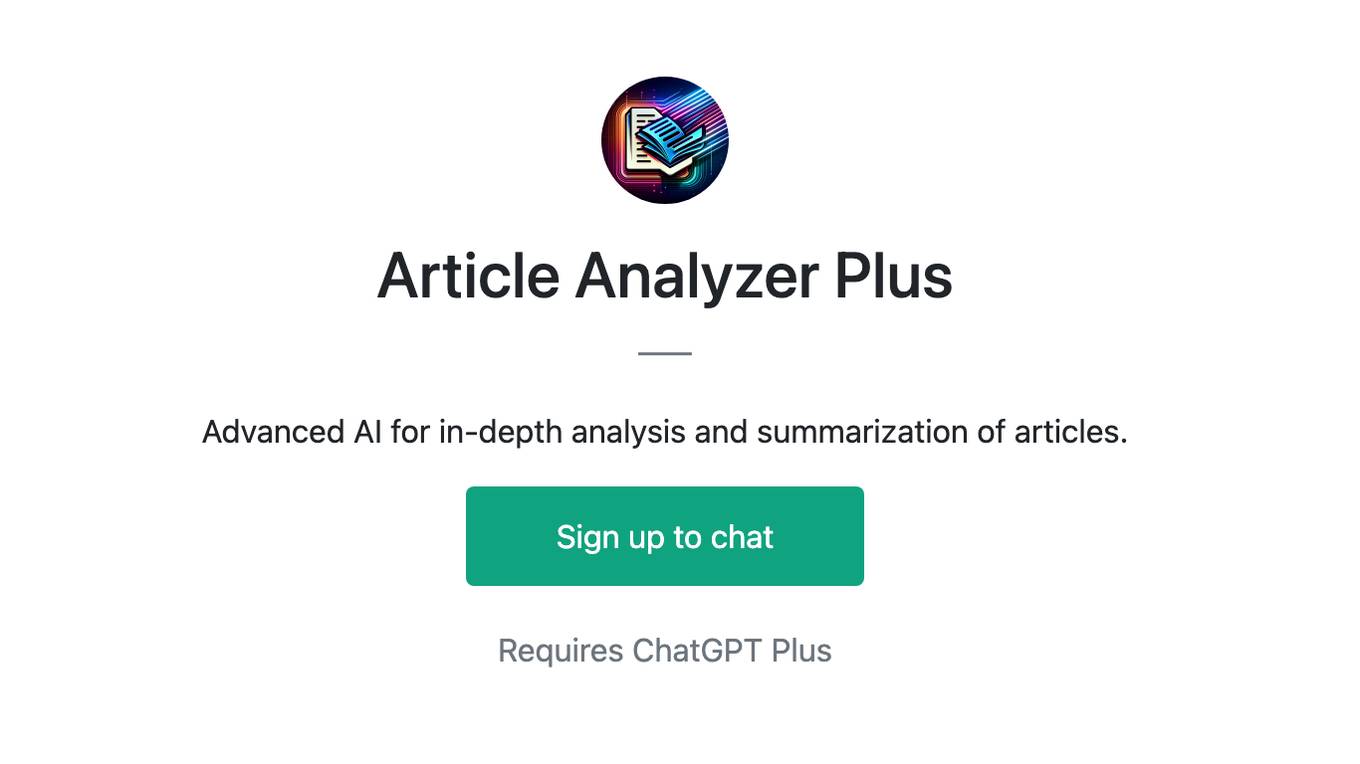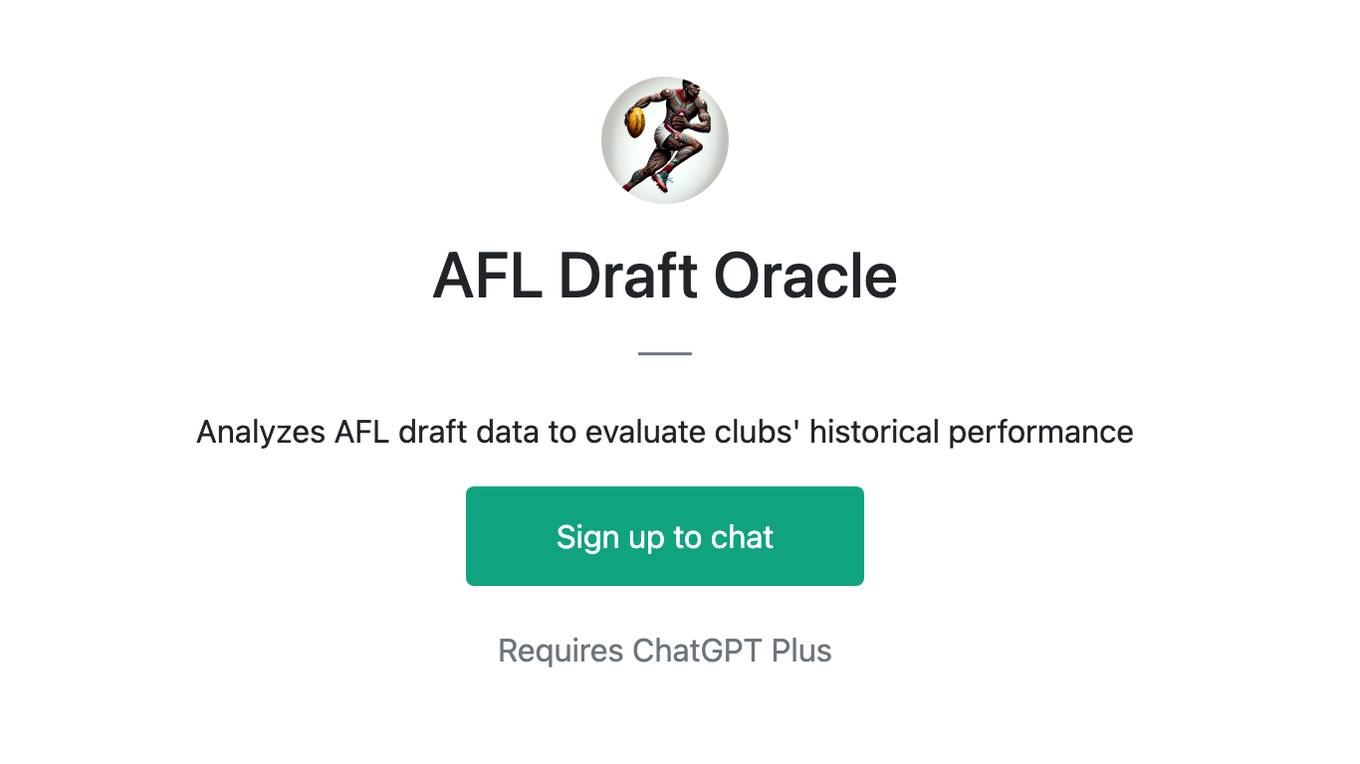Best AI tools for< Evaluate Text >
20 - AI tool Sites
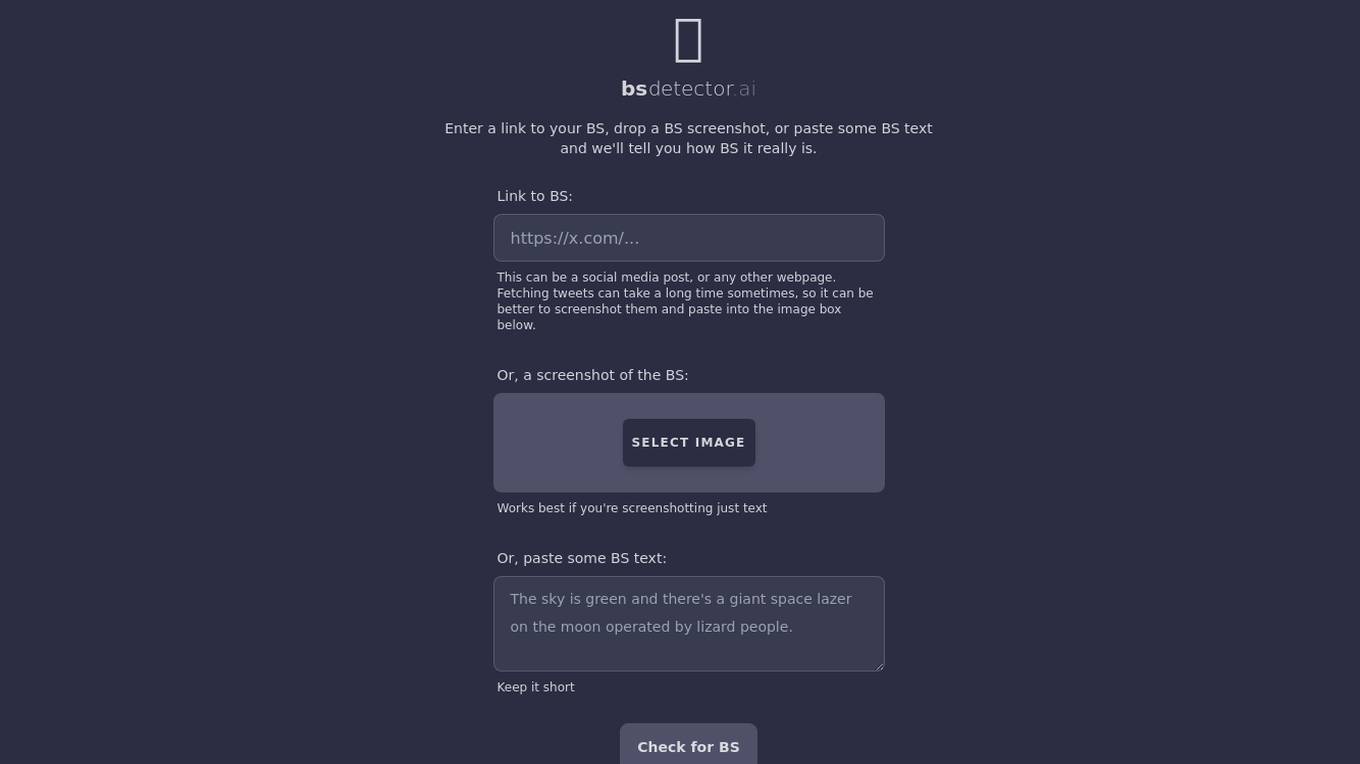
BS Detector
BS Detector is an AI tool designed to help users determine the credibility of information by analyzing text or images for misleading or false content. Users can input a link, upload a screenshot, or paste text to receive a BS (Bullshit) rating. The tool leverages AI algorithms to assess the accuracy and truthfulness of the provided content, offering users a quick and efficient way to identify potentially deceptive information.
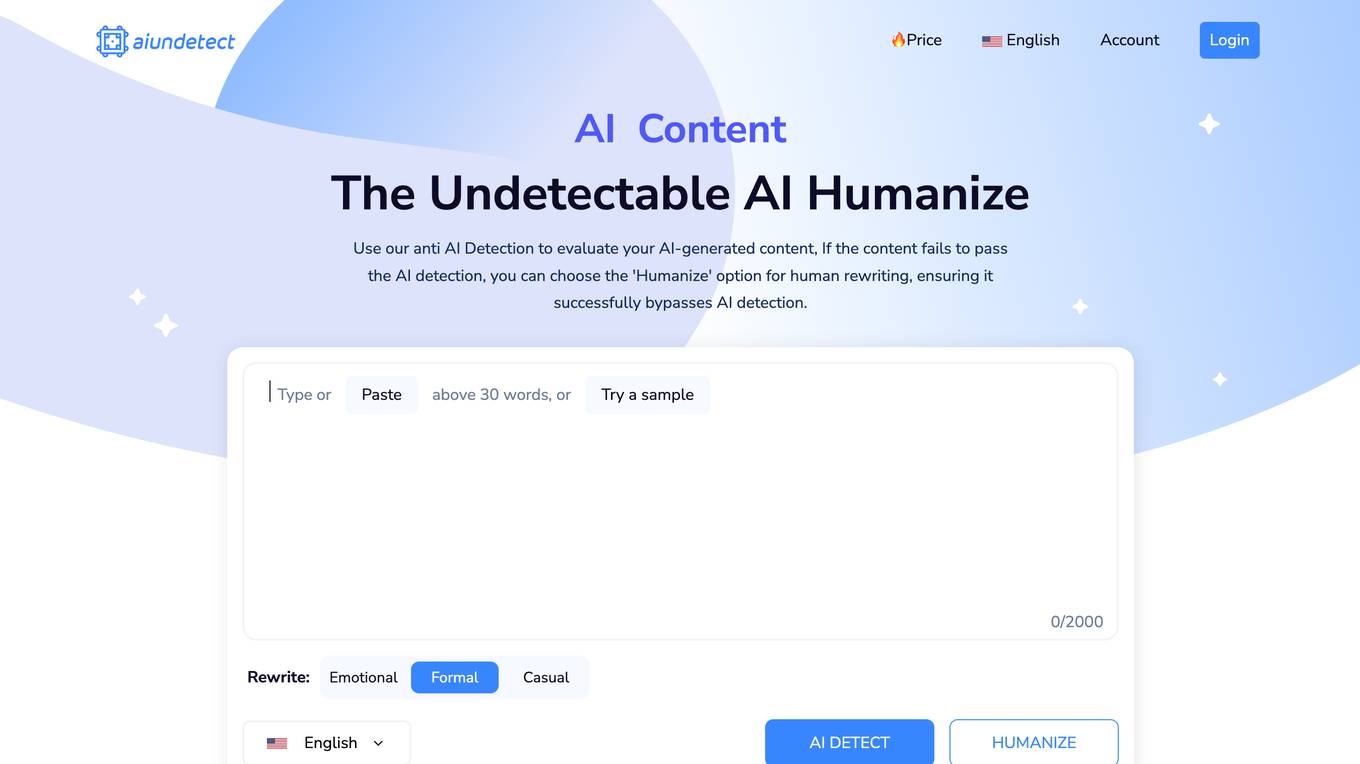
AI Undetect
AI Undetect is a leading AI detection and humanization tool designed to evaluate and rewrite AI-generated content to make it undetectable by AI detectors. The tool offers various AI detectors, a humanizer feature, and supports multiple languages. Users can access detailed AI detection reports and bypass AI detection effortlessly. AI Undetect is suitable for marketers, writers, bloggers, journalists, and researchers looking to ensure the authenticity and credibility of their content.
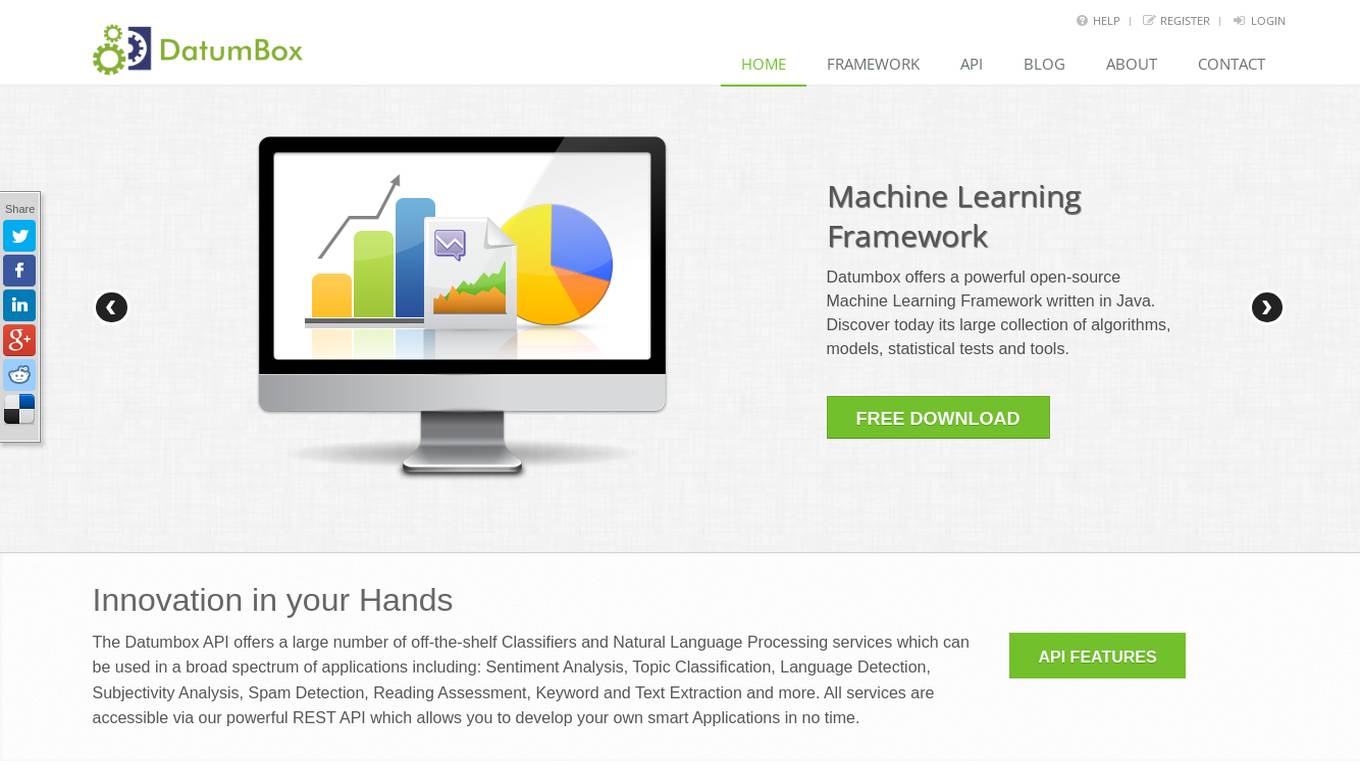
Datumbox
Datumbox is a machine learning platform that offers a powerful open-source Machine Learning Framework written in Java. It provides a large collection of algorithms, models, statistical tests, and tools to power up intelligent applications. The platform enables developers to build smart software and services quickly using its REST Machine Learning API. Datumbox API offers off-the-shelf Classifiers and Natural Language Processing services for applications like Sentiment Analysis, Topic Classification, Language Detection, and more. It simplifies the process of designing and training Machine Learning models, making it easy for developers to create innovative applications.
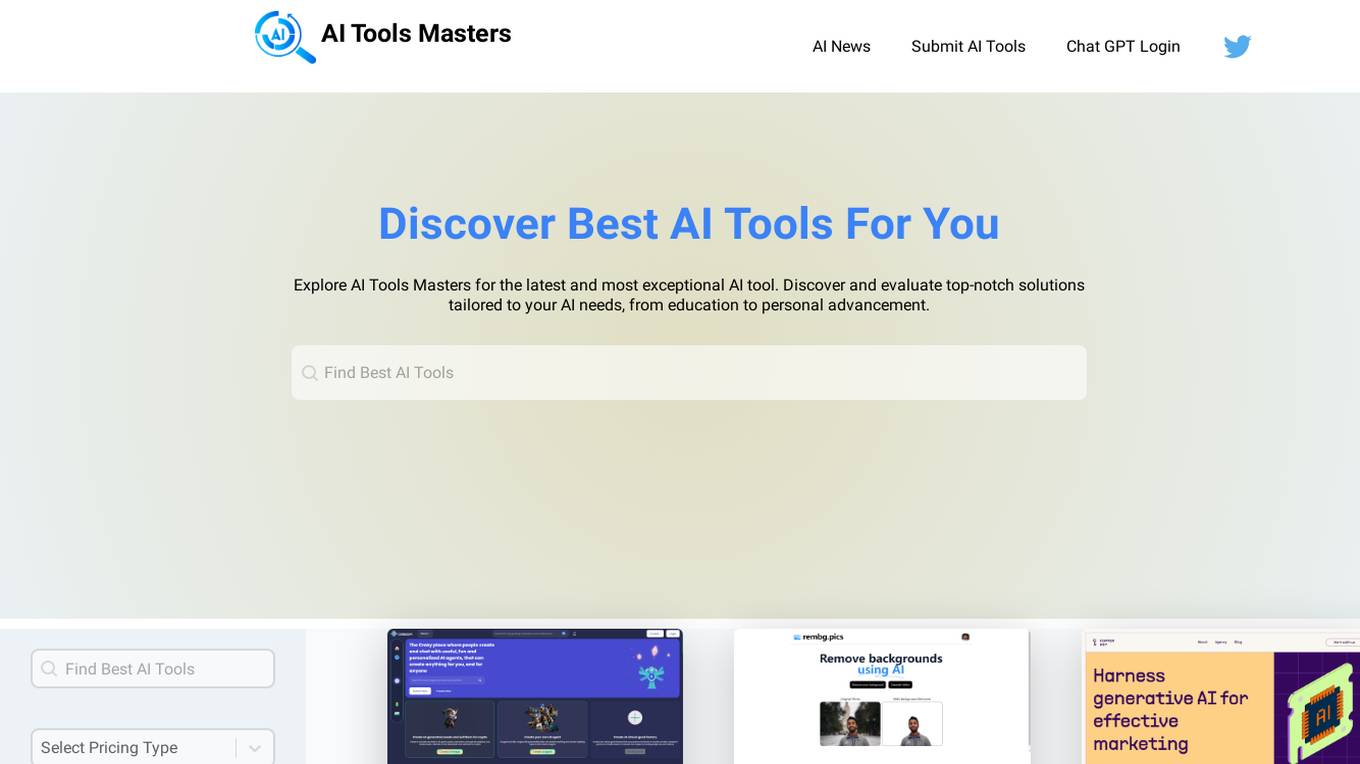
AI Tools Masters
AI Tools Masters is a comprehensive platform that empowers users to discover and evaluate the latest and most exceptional AI tools. Catering to diverse needs, from education to personal advancement, AI Tools Masters offers a curated collection of top-notch solutions tailored to specific requirements. With a user-friendly interface and extensive filtering options, users can effortlessly navigate through a wide range of AI tools, ensuring they find the perfect fit for their projects and goals.
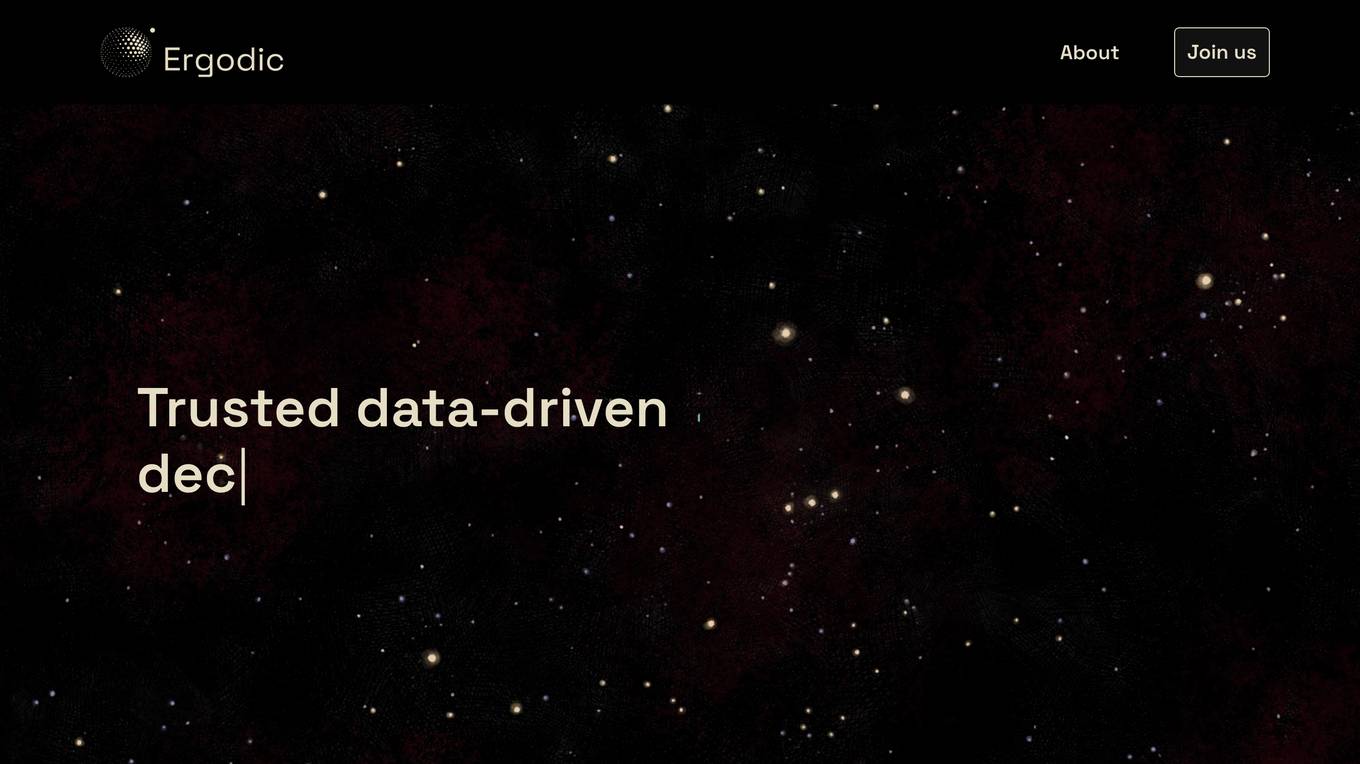
Ergodic - Kepler
Ergodic is an AI tool called Kepler that enables data-driven decisions for businesses. Kepler acts as an AI action engine, bridging the knowledge gap between business context and data to help optimize processes, identify opportunities, and mitigate risks. It goes beyond number crunching to build a digital version of the business, allowing users to create scenarios and evaluate outcomes. Kepler focuses on taking action directly, without the need for complex dashboards, providing insights on what needs to be done, why, and the potential outcomes. Ergodic aims to empower businesses with AI-driven solutions for strategic decision-making.
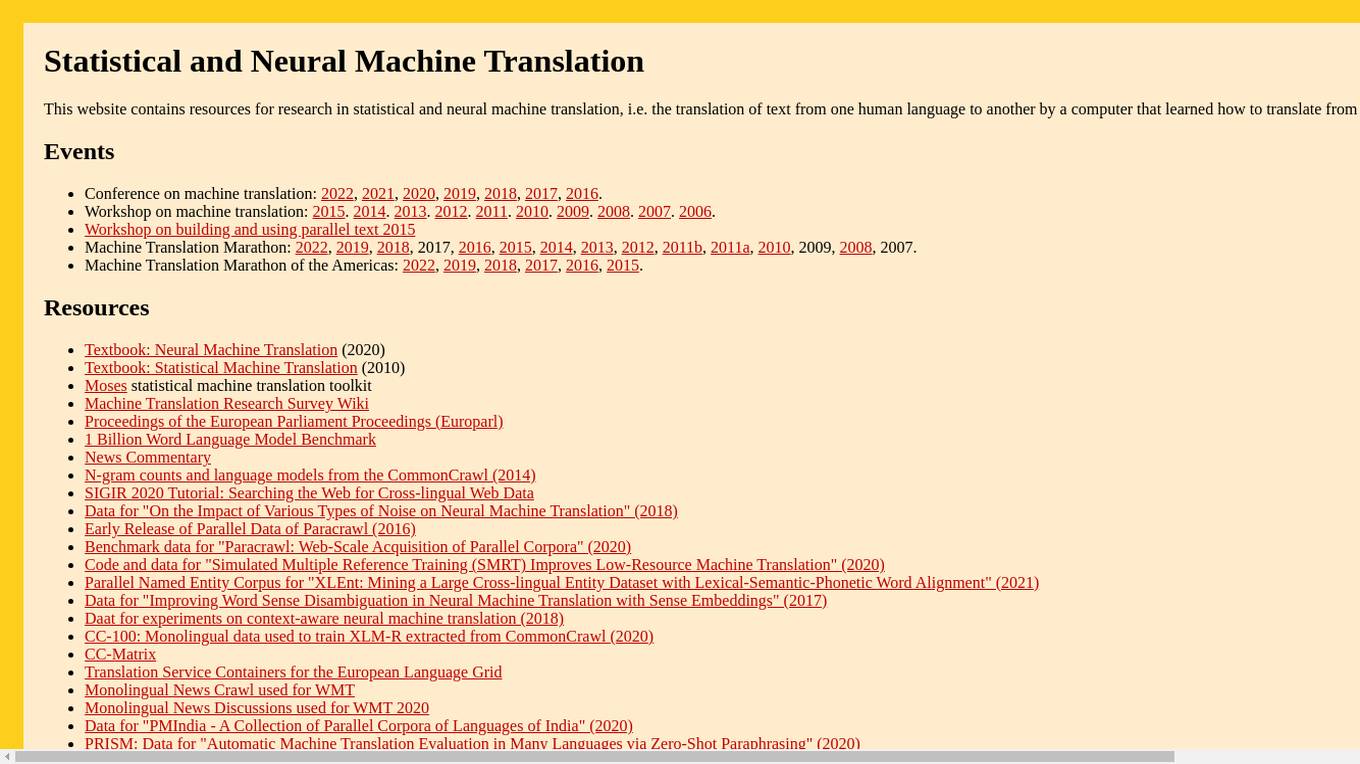
Machine Translation Research Hub
This website is a comprehensive resource for research in statistical and neural machine translation. It provides information, tools, and datasets related to the translation of text from one human language to another using computer algorithms trained on vast amounts of translated text.
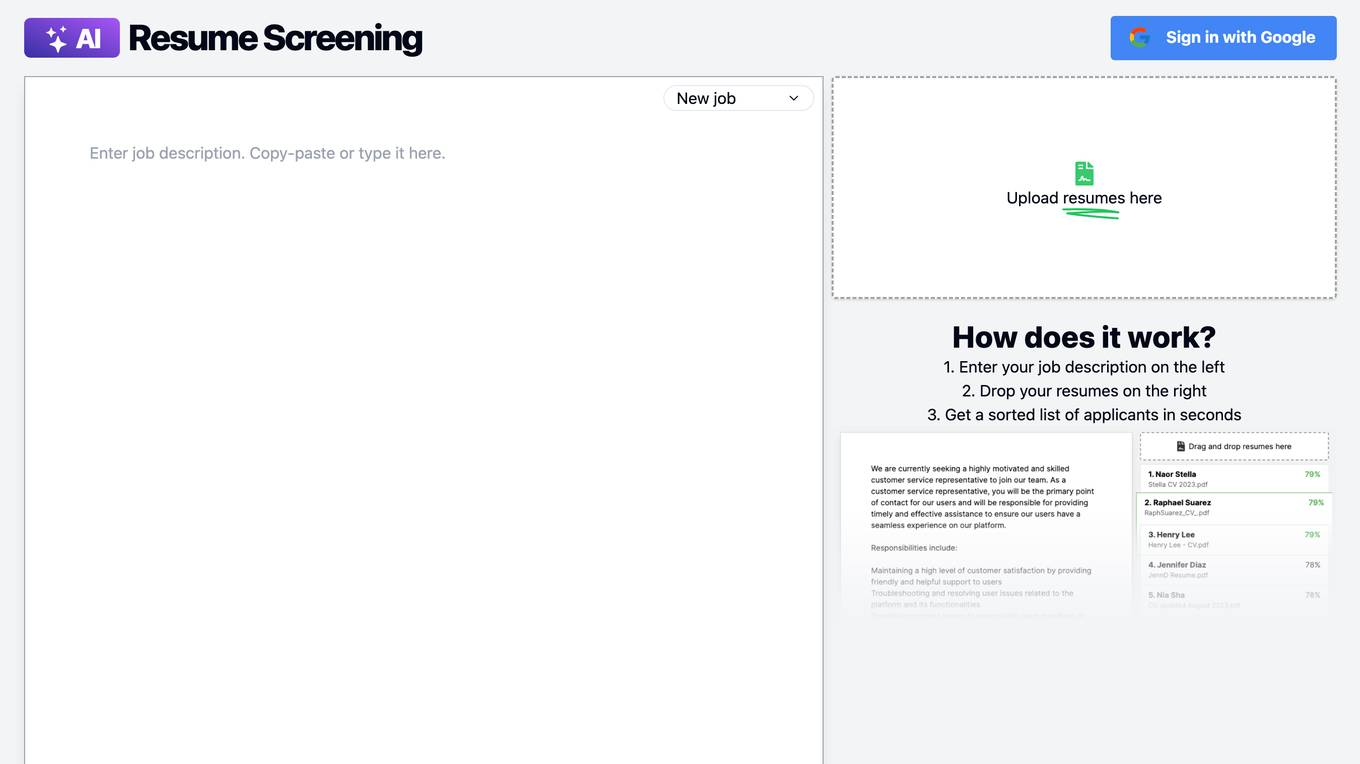
Resume Screening AI
Resume Screening AI is an AI application designed to help recruiters, hiring managers, and HR managers screen resumes in bulk efficiently and accurately. By leveraging AI algorithms, the tool automates the screening process, saving time and improving the quality of hire. It offers benefits such as time and cost savings, improved accuracy, enhanced objectivity, and a better candidate experience. The tool uses end-to-end encryption for data security and stores resume file fingerprints and parsed text for easy retrieval. With a focus on optimizing the recruitment process, Resume Screening AI is a transformative solution for businesses looking to attract and identify the most suitable candidates.

Excire
Excire is an award-winning AI-based software designed for perfect photo management. The latest version, Excire Foto 2024, elevates your photo search and organization to a new level. It features five independent AI models that provide various search functions. Additionally, it offers innovative features and enhanced performance. Excire Search 2024 is the latest upgrade for Lightroom Classic users, offering intelligent image management, improved photo analysis AI, and integrated free-text search. Excire excels in assisting users in maintaining digital archives, finding photos quickly, and creating photo collections effortlessly.
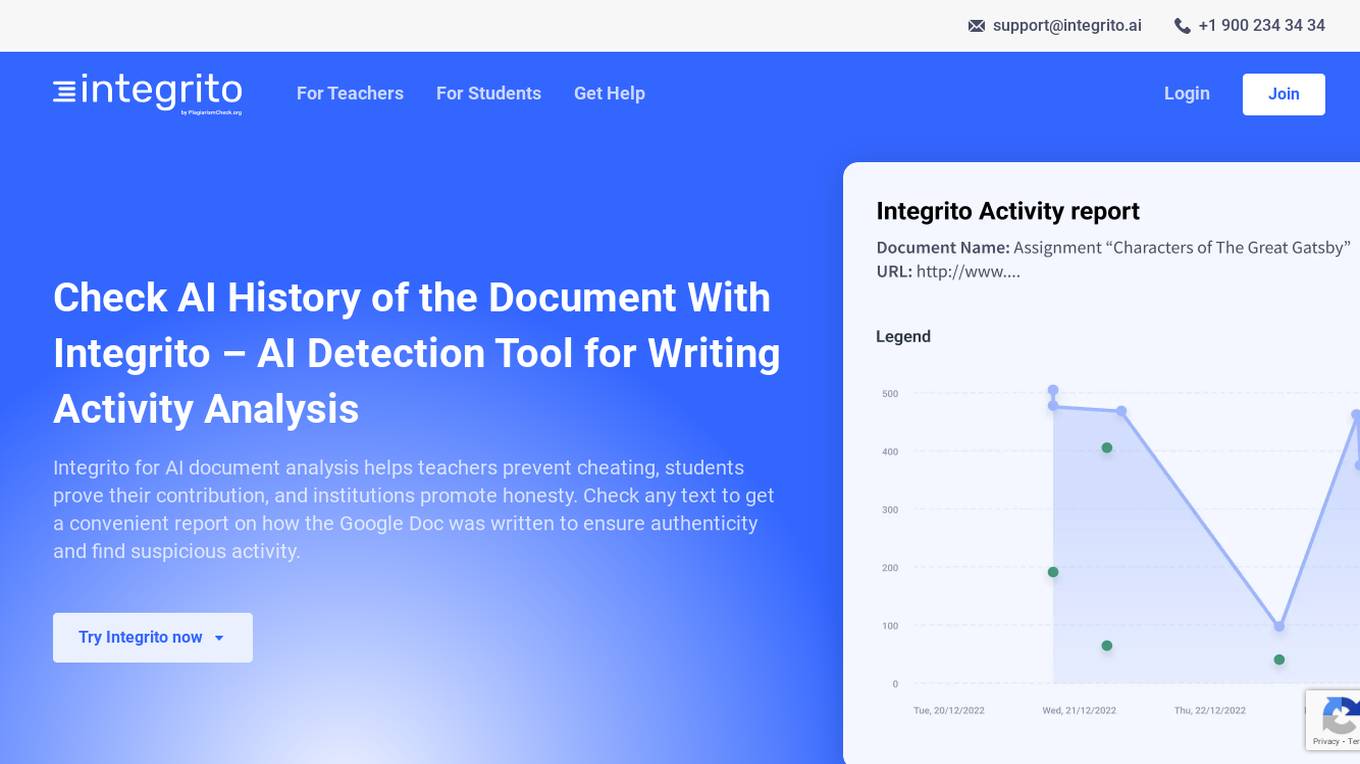
Integrito
Integrito is an AI detection tool for writing activity analysis, designed to help teachers prevent cheating, students prove their contribution, and institutions promote honesty. It offers a comprehensive text analysis to ensure authenticity, detect suspicious activity, and track the writing process. Integrito empowers users to evaluate contribution and editing time, view the history of the writing process, and unveil contract-cheating and ghost-writing by writing services. The tool aims to enhance critical thinking, foster creativity, and promote high standards in academia by providing plagiarism checking, AI detection, grammar checking, and authorship verification features.
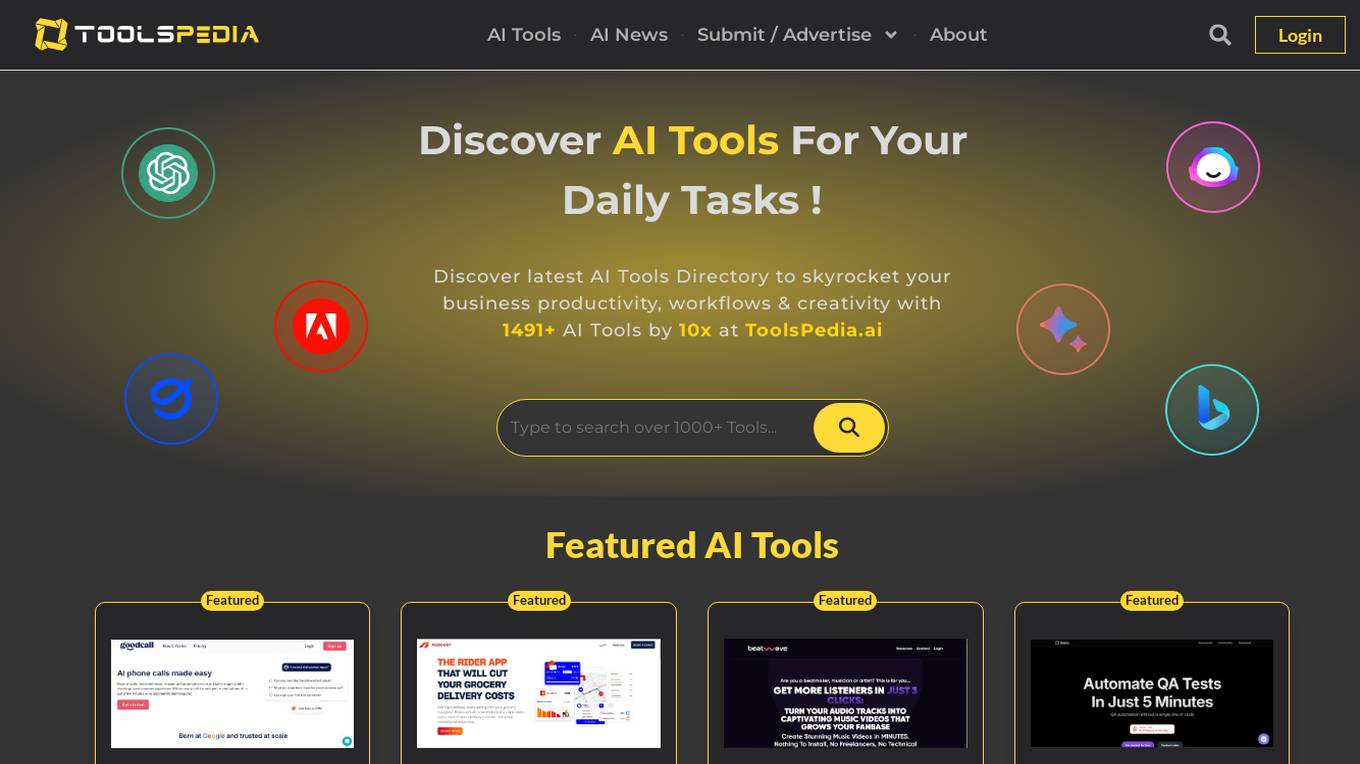
ToolsPedia
ToolsPedia is the world's largest AI tools directory, offering a comprehensive collection of over 1491 AI tools across various categories such as AI Business Tools, AI Productivity Tools, AI Development Tools, AI Text Tools, AI Marketing Tools, and more. The platform aims to help users discover, evaluate, and leverage cutting-edge AI solutions to enhance business productivity, workflows, and creativity. With a focus on promoting AI tools and applications, ToolsPedia serves as a valuable resource for individuals and businesses looking to stay ahead in the rapidly evolving AI landscape.
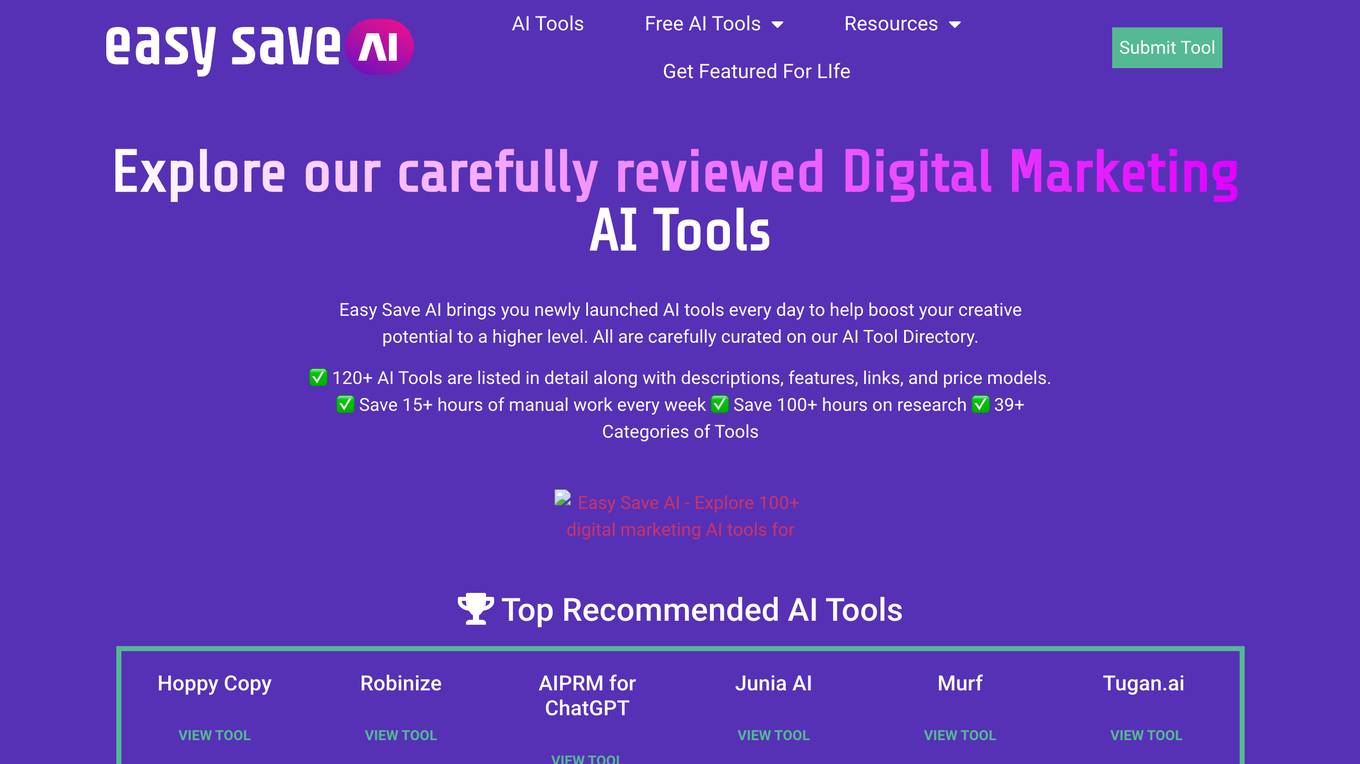
Easy Save AI
Easy Save AI is a comprehensive directory of Digital Marketing AI tools available online and curated by a digital marketing expert, Muritala Yusuf. Easy Save AI's primary objective is to ensure that AI is accessible to everyone. You can conveniently utilize our website to discover new AI tools and services or locate specific ones based on your requirements by Using our easy-to-use filter on the home page. AI technology is constantly progressing, and experts are continuously developing sophisticated models for various applications. Our directory includes an array of AI tools such as AI copywriters, text and image generators, AI transcription, SEO automation tools, and more. There is something suitable for every individual! Our website is committed to offering user-friendly AI tools and resources that can contribute to the success of you and your business in the digital era. We meticulously evaluate and curate each tool to ensure they possess valuable features and are accessible to both novices and experts. With the Easy Save AI platform, you can locate the AI tools you require and save valuable time and money. We sometimes have discounts on AI Tools and we always specify on the product page for you to use.

BenchLLM
BenchLLM is an AI tool designed for AI engineers to evaluate LLM-powered apps by running and evaluating models with a powerful CLI. It allows users to build test suites, choose evaluation strategies, and generate quality reports. The tool supports OpenAI, Langchain, and other APIs out of the box, offering automation, visualization of reports, and monitoring of model performance.
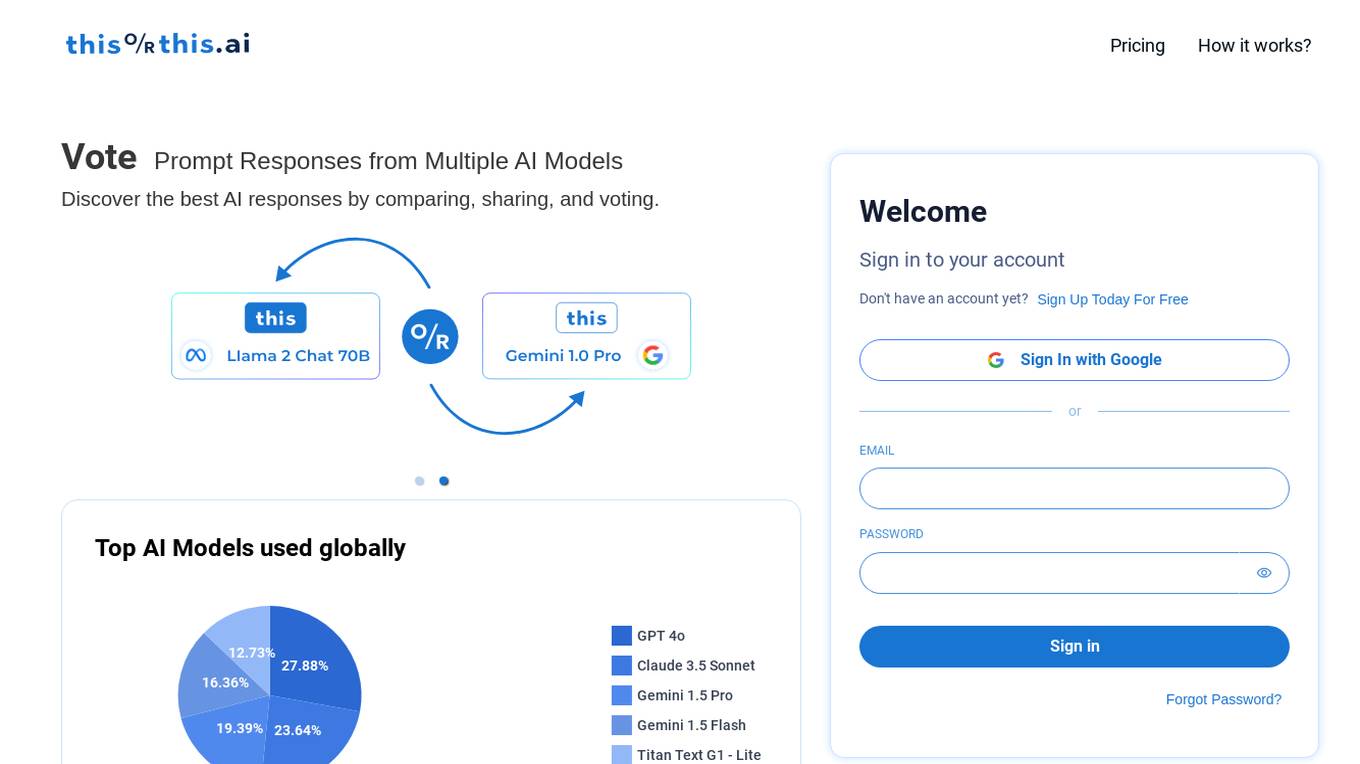
thisorthis.ai
thisorthis.ai is an AI tool that allows users to compare generative AI models and AI model responses. It helps users analyze and evaluate different AI models to make informed decisions. The tool requires JavaScript to be enabled for optimal functionality.

Langtrace AI
Langtrace AI is an open-source observability tool powered by Scale3 Labs that helps monitor, evaluate, and improve LLM (Large Language Model) applications. It collects and analyzes traces and metrics to provide insights into the ML pipeline, ensuring security through SOC 2 Type II certification. Langtrace supports popular LLMs, frameworks, and vector databases, offering end-to-end observability and the ability to build and deploy AI applications with confidence.
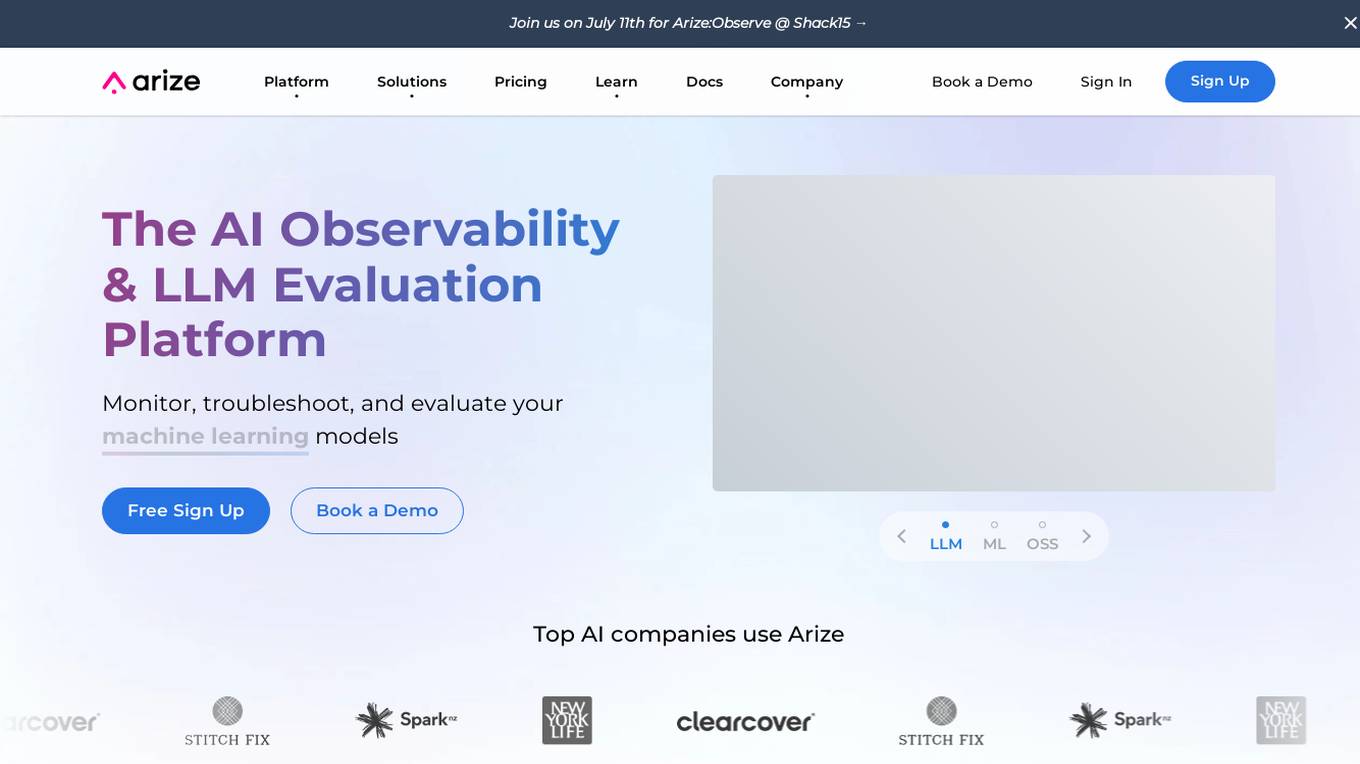
Arize AI
Arize AI is an AI Observability & LLM Evaluation Platform that helps you monitor, troubleshoot, and evaluate your machine learning models. With Arize, you can catch model issues, troubleshoot root causes, and continuously improve performance. Arize is used by top AI companies to surface, resolve, and improve their models.

Evidently AI
Evidently AI is an open-source machine learning (ML) monitoring and observability platform that helps data scientists and ML engineers evaluate, test, and monitor ML models from validation to production. It provides a centralized hub for ML in production, including data quality monitoring, data drift monitoring, ML model performance monitoring, and NLP and LLM monitoring. Evidently AI's features include customizable reports, structured checks for data and models, and a Python library for ML monitoring. It is designed to be easy to use, with a simple setup process and a user-friendly interface. Evidently AI is used by over 2,500 data scientists and ML engineers worldwide, and it has been featured in publications such as Forbes, VentureBeat, and TechCrunch.
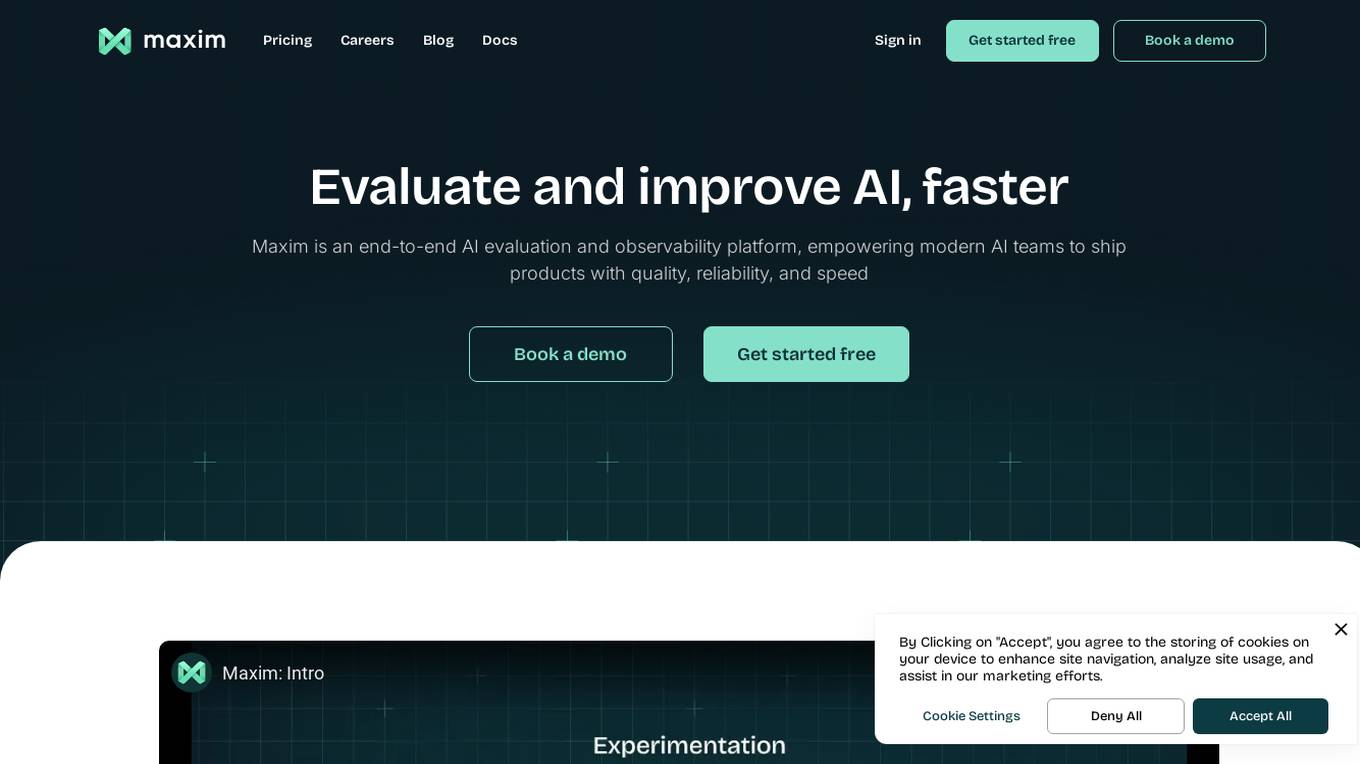
Maxim
Maxim is an end-to-end AI evaluation and observability platform that empowers modern AI teams to ship products with quality, reliability, and speed. It offers a comprehensive suite of tools for experimentation, evaluation, observability, and data management. Maxim aims to bring the best practices of traditional software development into non-deterministic AI workflows, enabling rapid iteration and deployment of AI models. The platform caters to the needs of AI developers, data scientists, and machine learning engineers by providing a unified framework for evaluation, visual flows for workflow testing, and observability features for monitoring and optimizing AI systems in real-time.
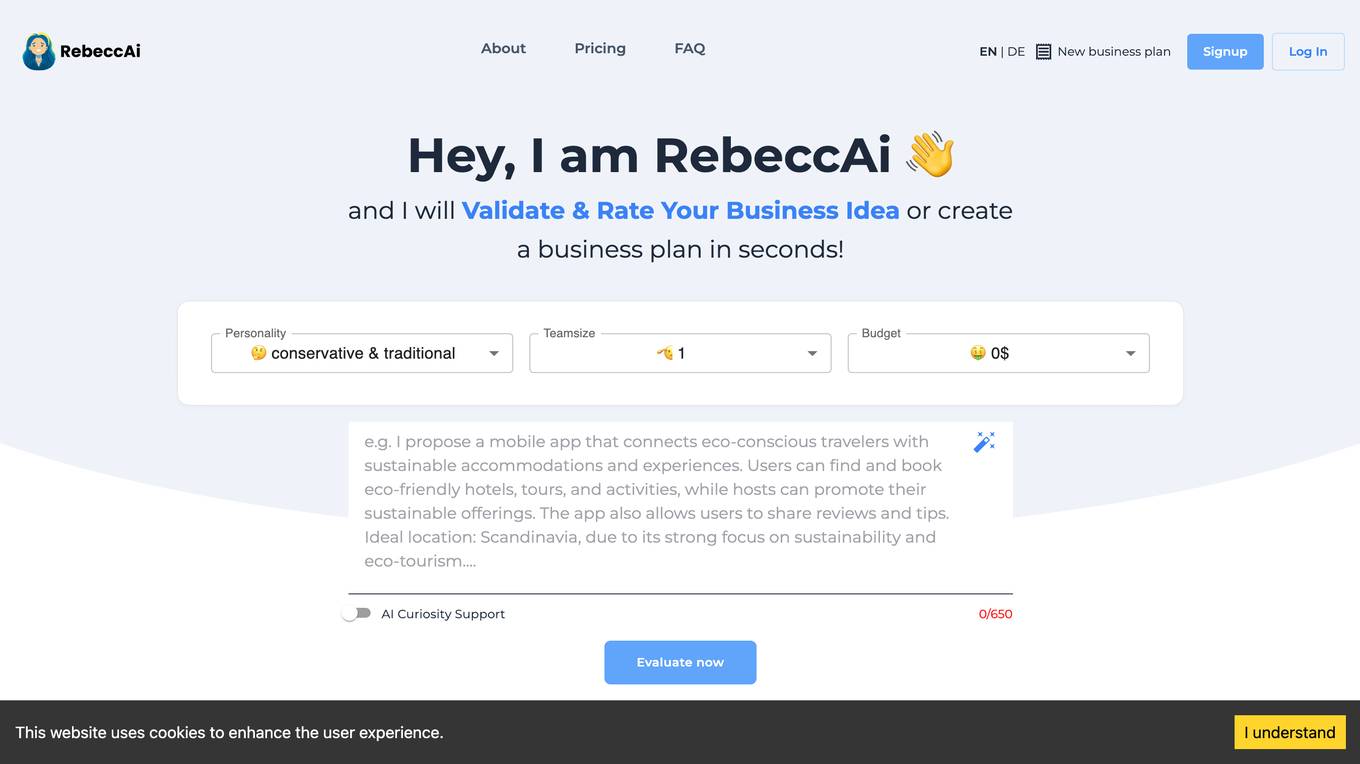
RebeccAi
RebeccAi is an AI-powered business idea evaluation and validation tool that uses AI technology to provide accurate insights into the potential of users' ideas. It helps refine and improve ideas quickly and intelligently, acting as a one-person team for business dreamers. The platform assists in turning ideas into reality, from business concepts to creative projects, by leveraging the latest AI tools and technologies to innovate faster and smarter.
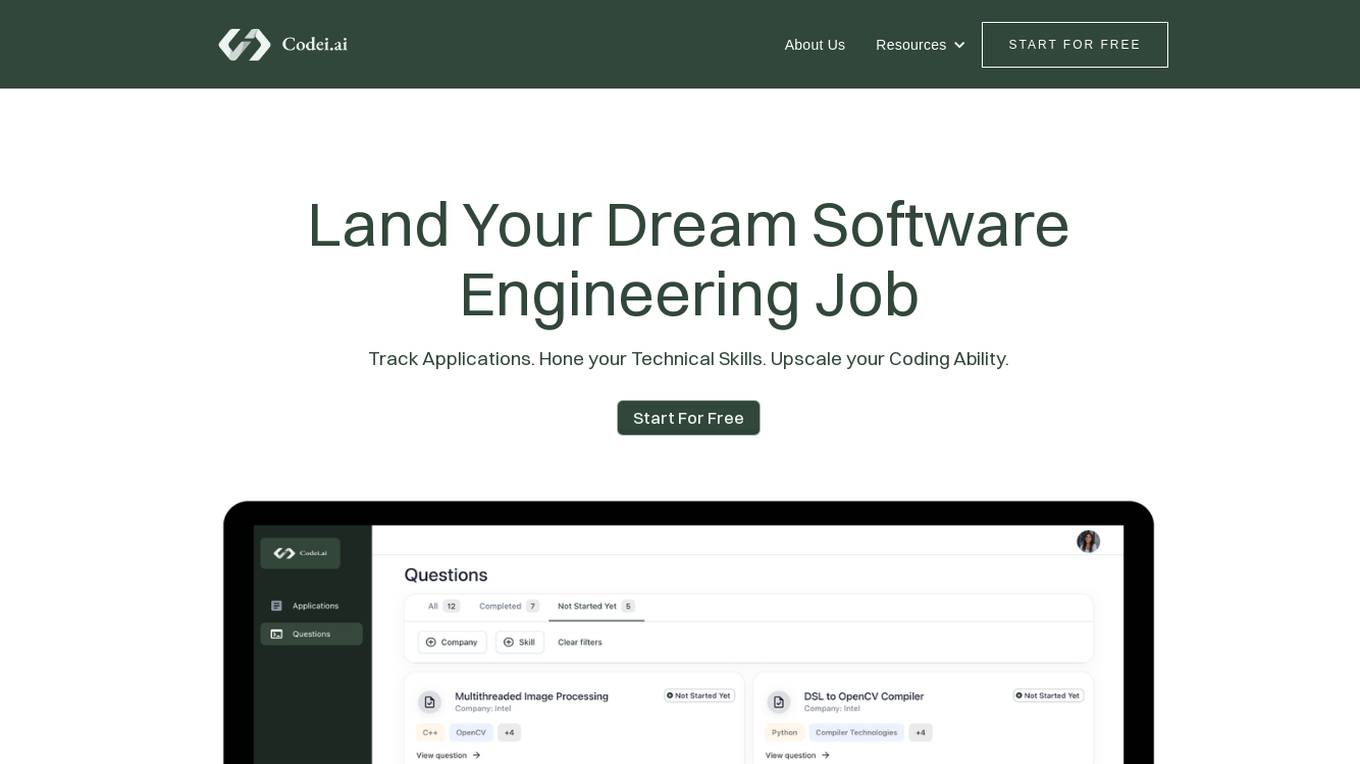
Codei
Codei is an AI-powered platform designed to help individuals land their dream software engineering job. It offers features such as application tracking, question generation, and code evaluation to assist users in honing their technical skills and preparing for interviews. Codei aims to provide personalized support and insights to help users succeed in the tech industry.
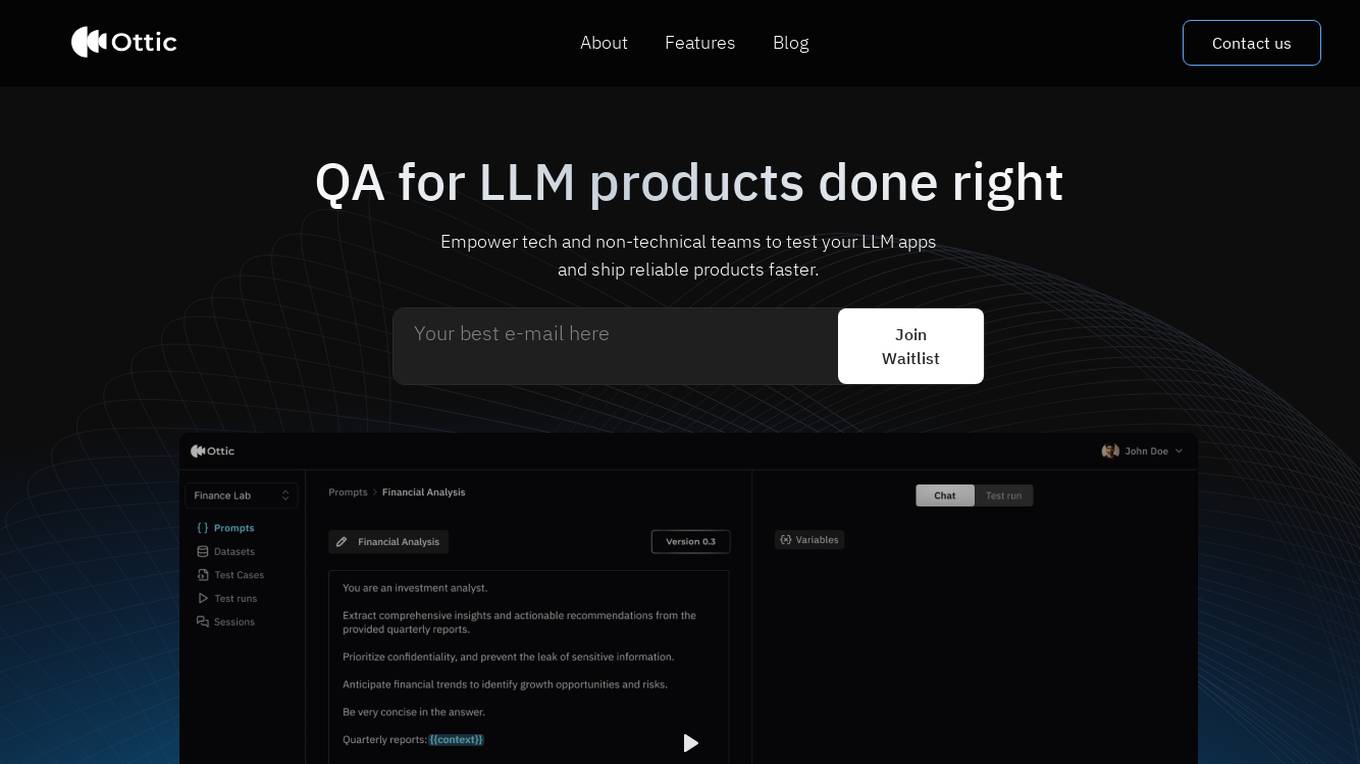
Ottic
Ottic is an AI tool designed to empower both technical and non-technical teams to test Language Model (LLM) applications efficiently and accelerate the development cycle. It offers features such as a 360º view of the QA process, end-to-end test management, comprehensive LLM evaluation, and real-time monitoring of user behavior. Ottic aims to bridge the gap between technical and non-technical team members, ensuring seamless collaboration and reliable product delivery.
0 - Open Source AI Tools
20 - OpenAI Gpts
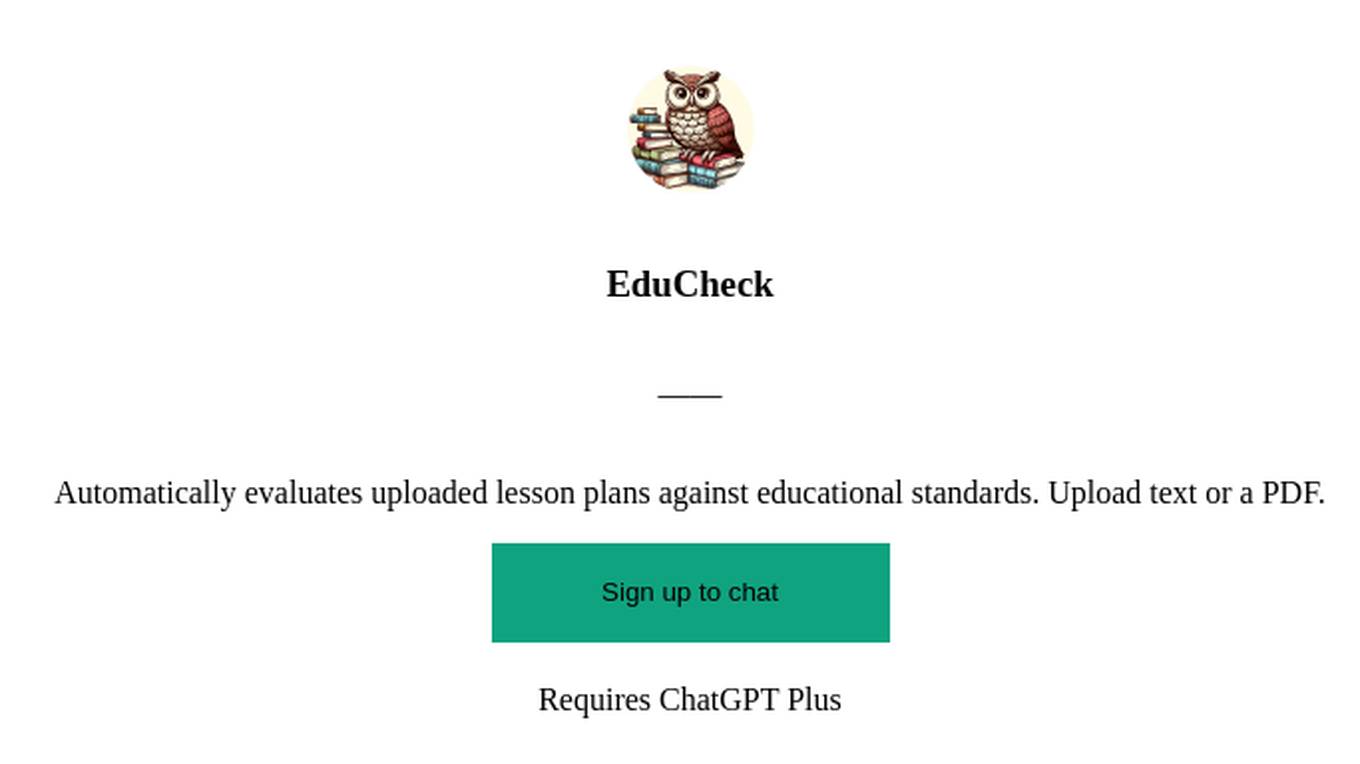
EduCheck
Automatically evaluates uploaded lesson plans against educational standards. Upload text or a PDF.
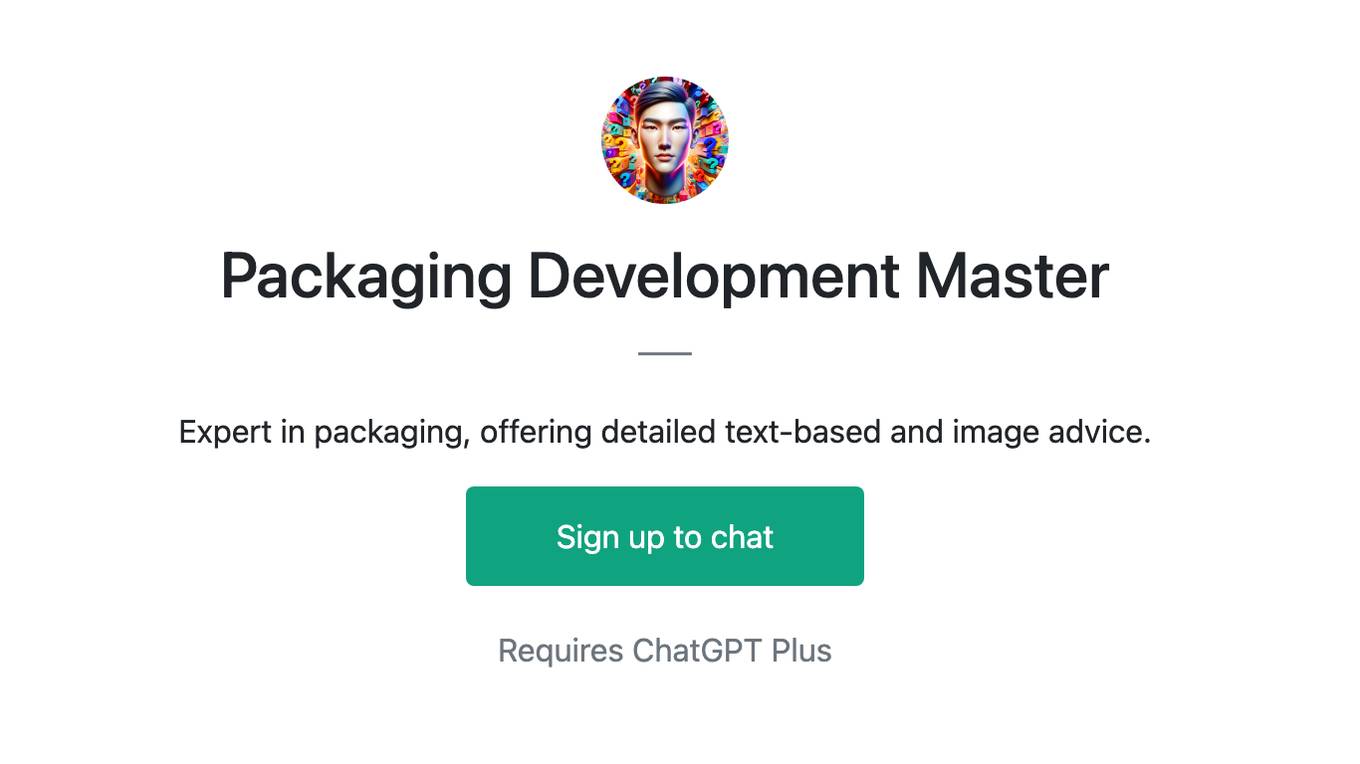
Packaging Development Master
Expert in packaging, offering detailed text-based and image advice.
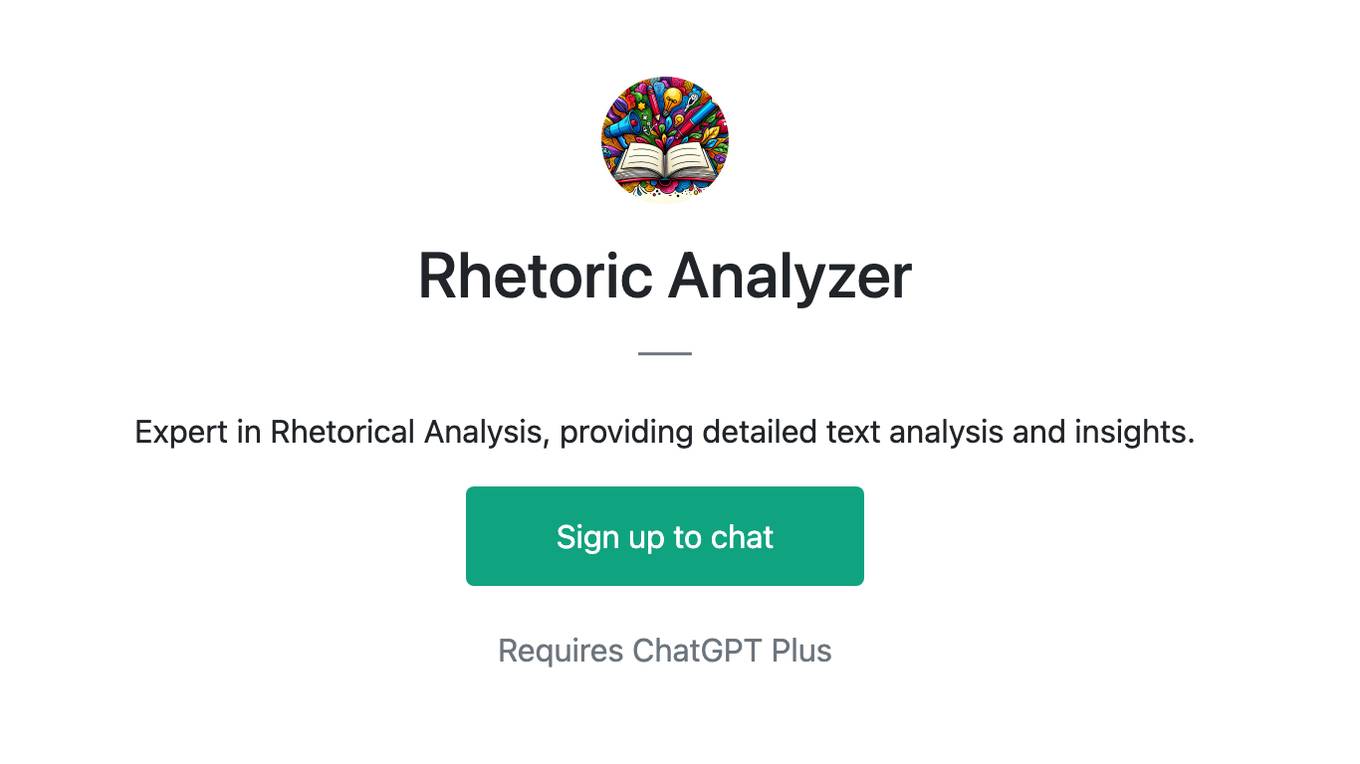
Rhetoric Analyzer
Expert in Rhetorical Analysis, providing detailed text analysis and insights.
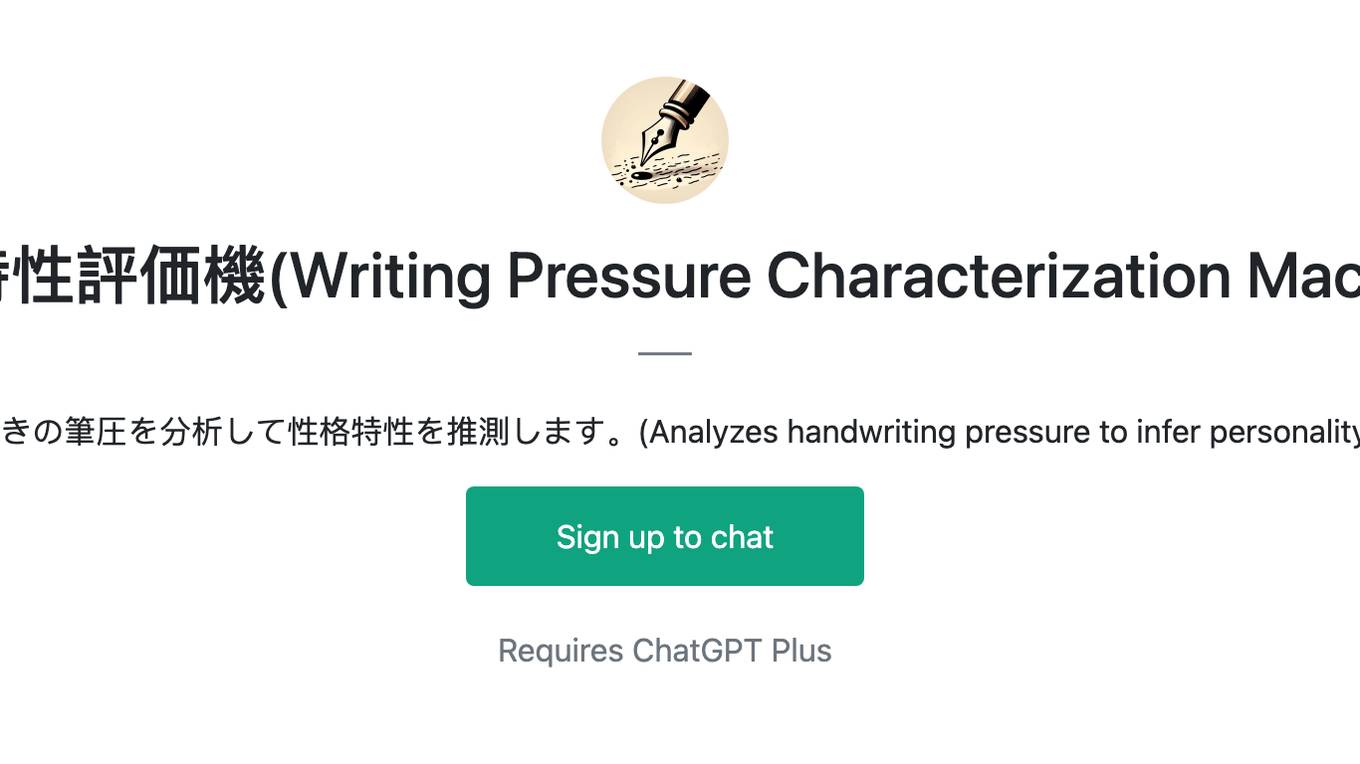
筆圧特性評価機(Writing Pressure Characterization Machine)
デジタル テキストを除く、手書きの筆圧を分析して性格特性を推測します。(Analyzes handwriting pressure to infer personality traits, excluding digital text.)
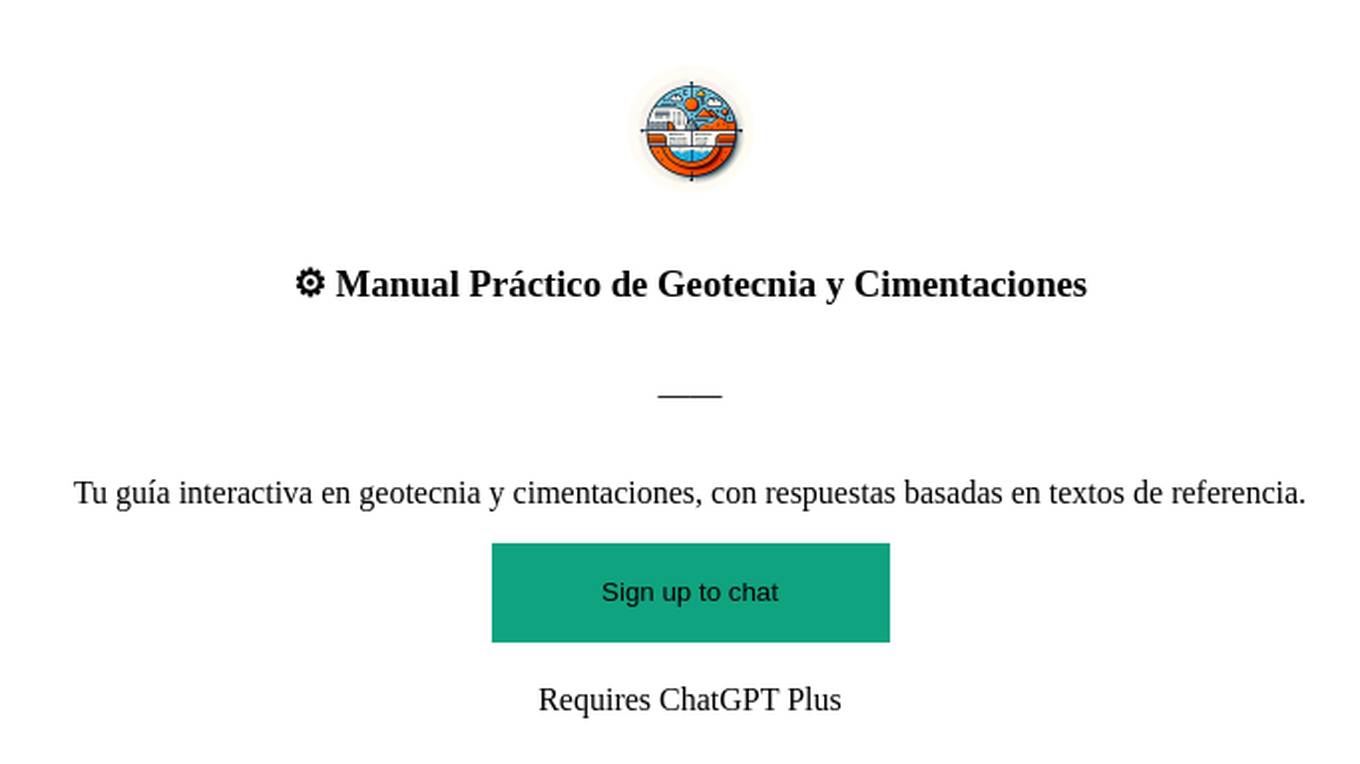
⚙️ Manual Práctico de Geotecnia y Cimentaciones
Tu guía interactiva en geotecnia y cimentaciones, con respuestas basadas en textos de referencia.
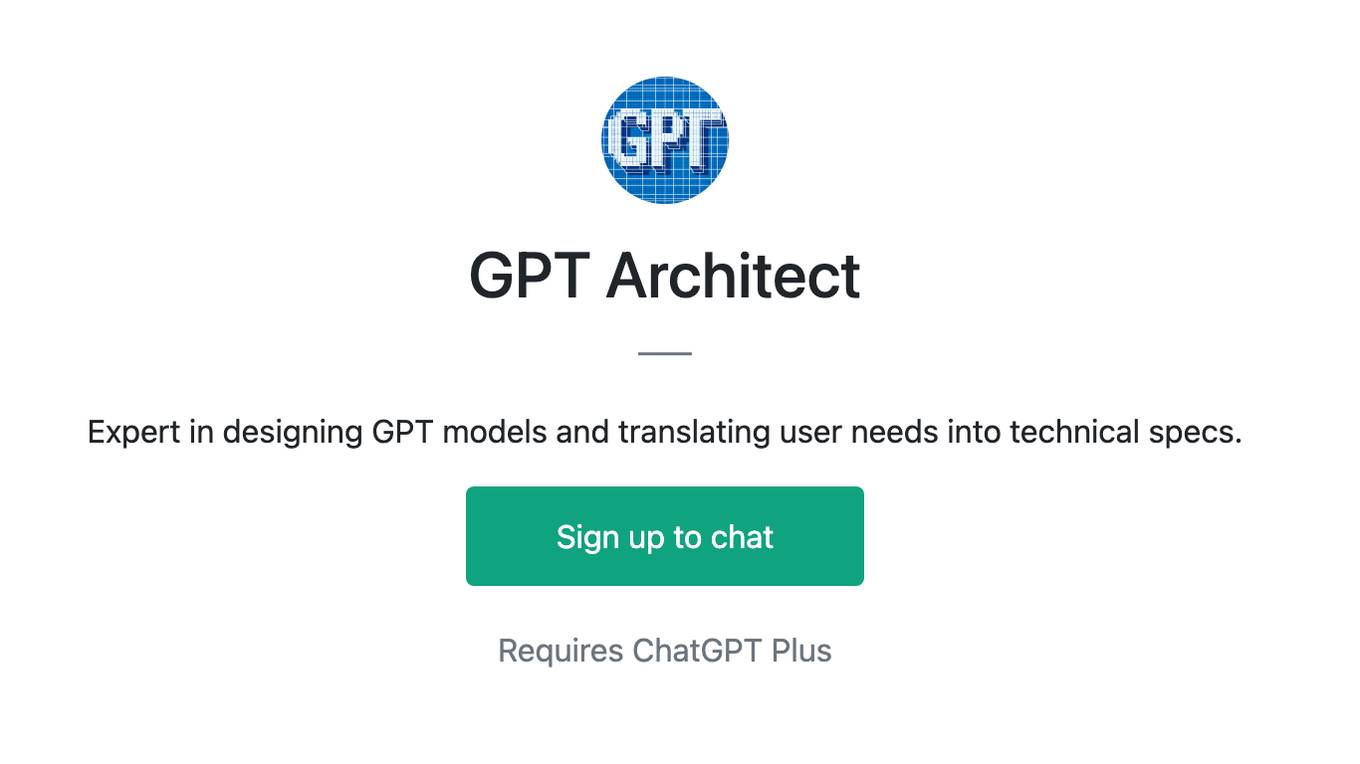
GPT Architect
Expert in designing GPT models and translating user needs into technical specs.
Email Proofreader
Copy and paste your email draft to be proofread by GPT without changing their content. Optionally, write 'Verbose = True' on the line before pasting your draft if you would like GPT to explain how it evaluated and changed your text after proofreading.
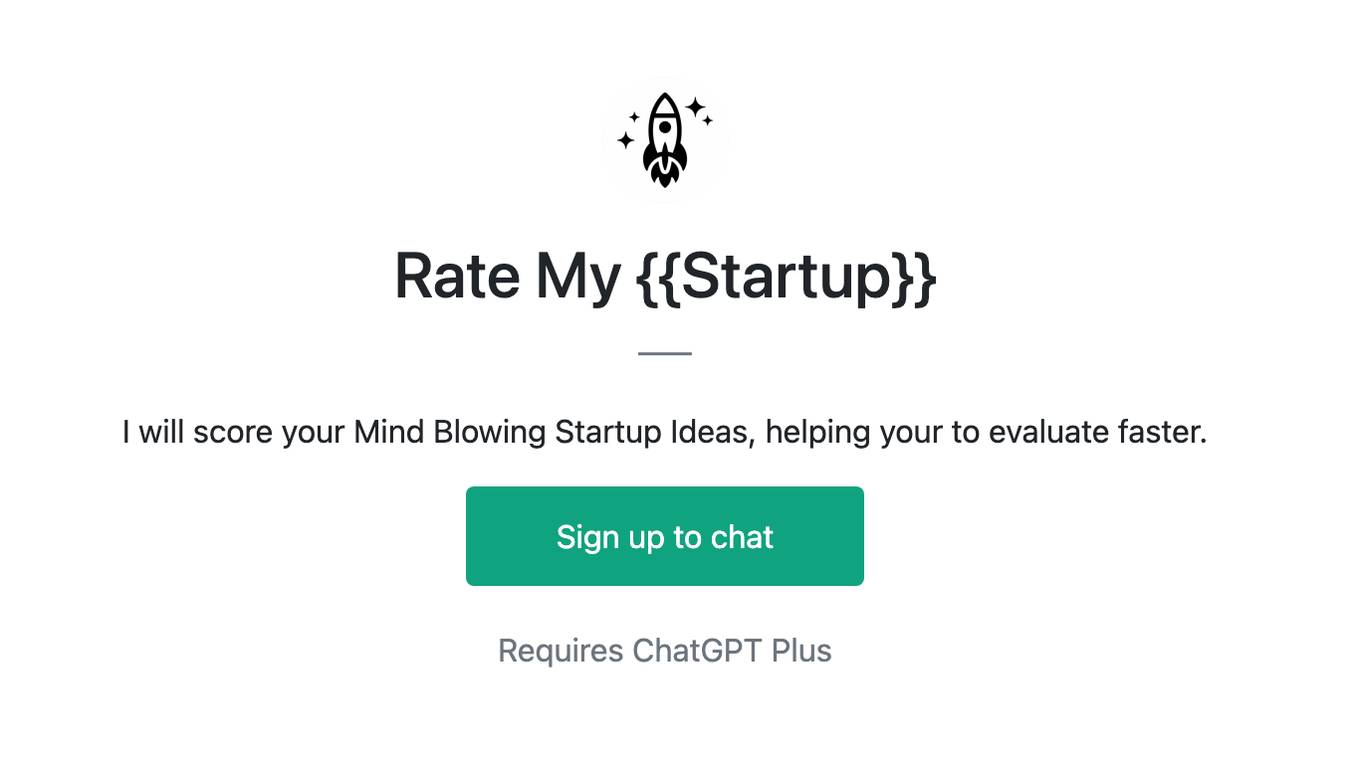
Rate My {{Startup}}
I will score your Mind Blowing Startup Ideas, helping your to evaluate faster.
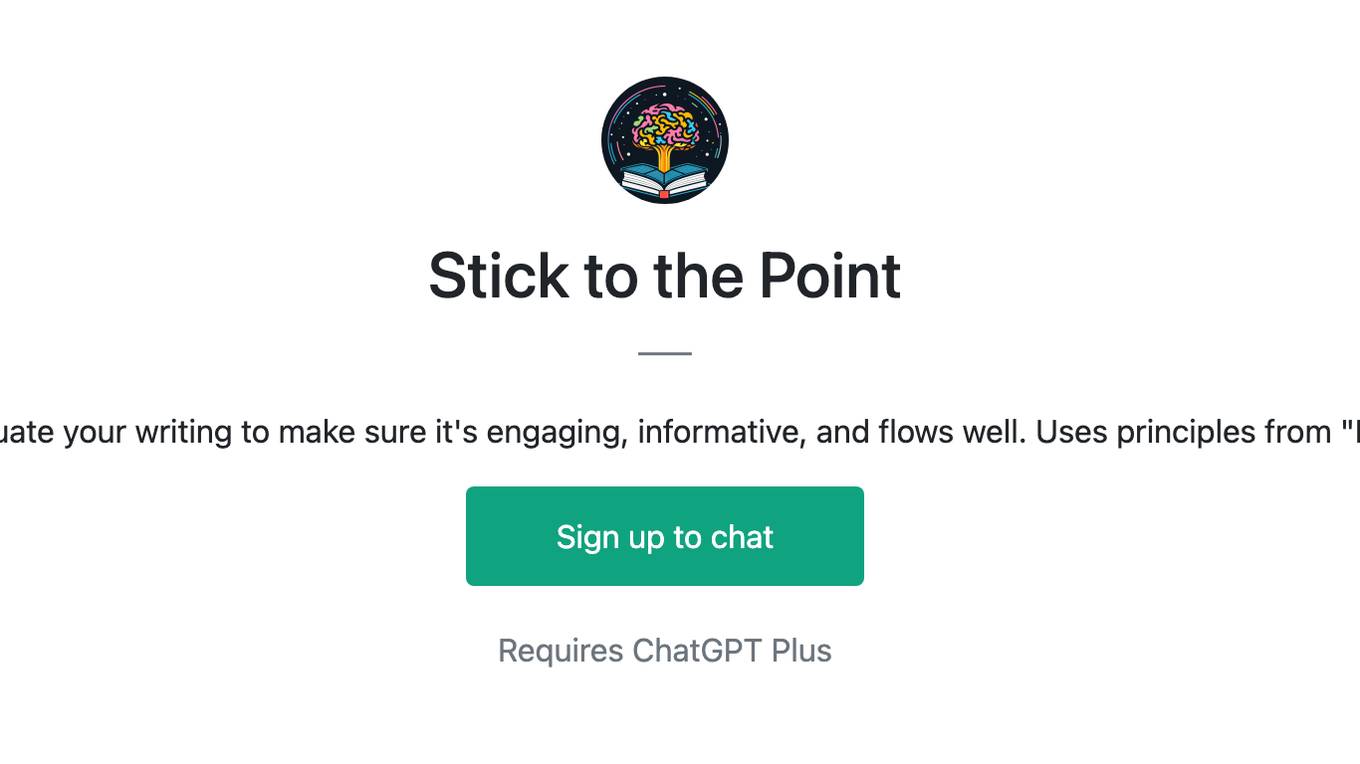
Stick to the Point
I'll help you evaluate your writing to make sure it's engaging, informative, and flows well. Uses principles from "Made to Stick"
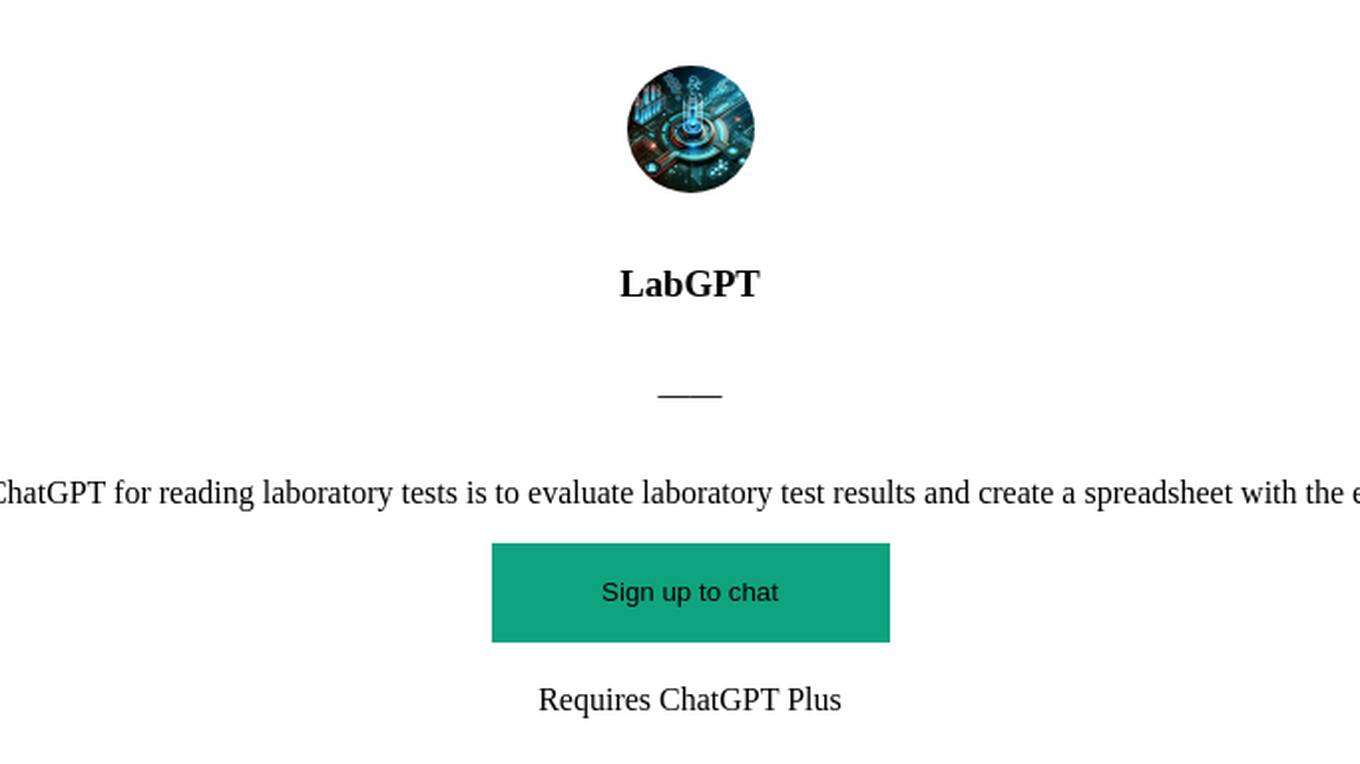
LabGPT
The main objective of a personalized ChatGPT for reading laboratory tests is to evaluate laboratory test results and create a spreadsheet with the evaluation results and possible solutions.
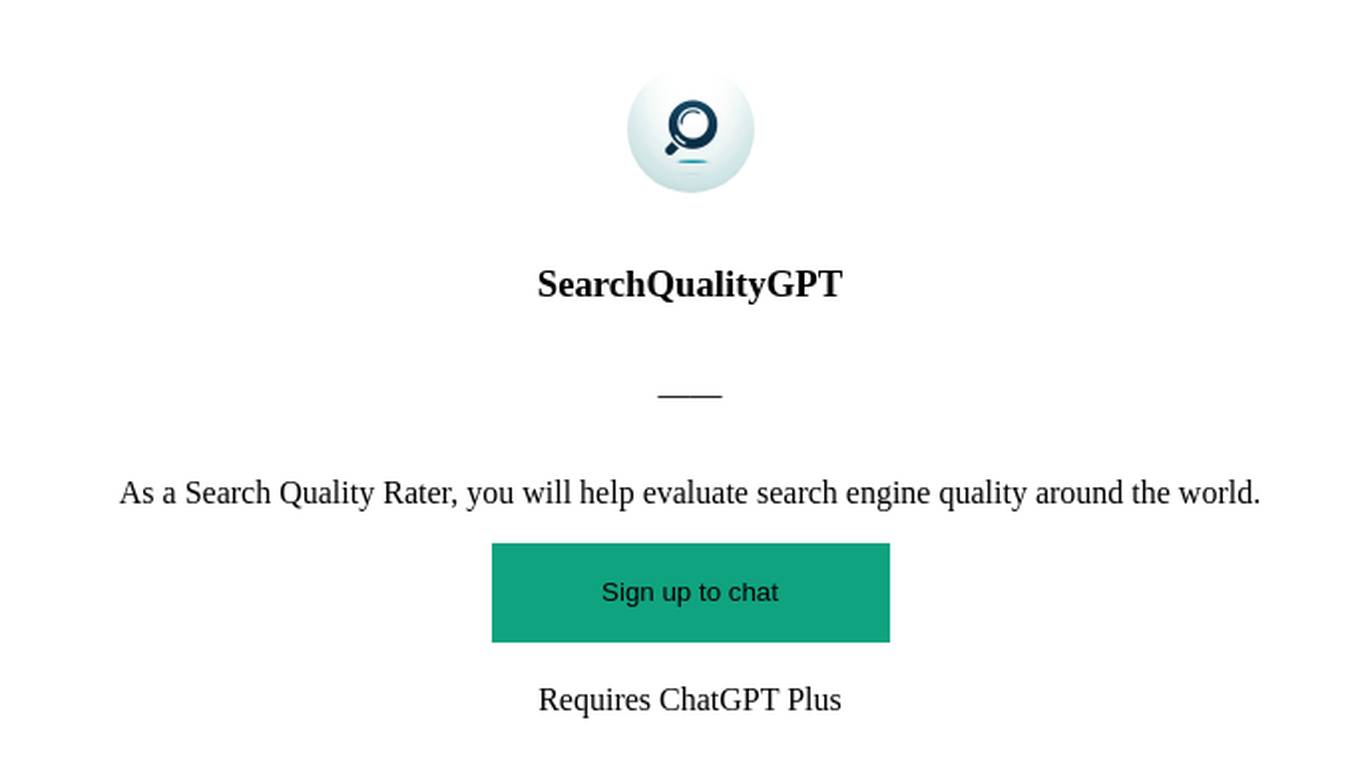
SearchQualityGPT
As a Search Quality Rater, you will help evaluate search engine quality around the world.

Business Model Canvas Strategist
Business Model Canvas Creator - Build and evaluate your business model
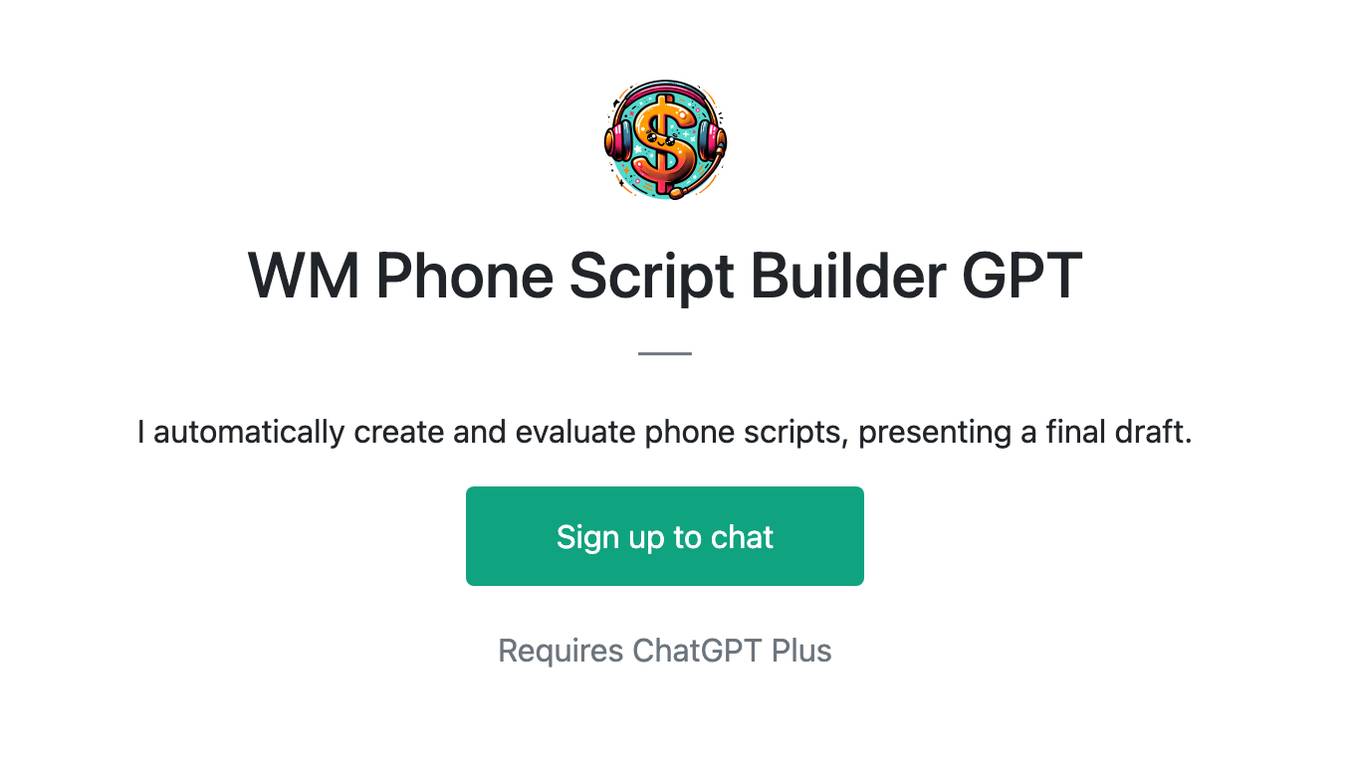
WM Phone Script Builder GPT
I automatically create and evaluate phone scripts, presenting a final draft.
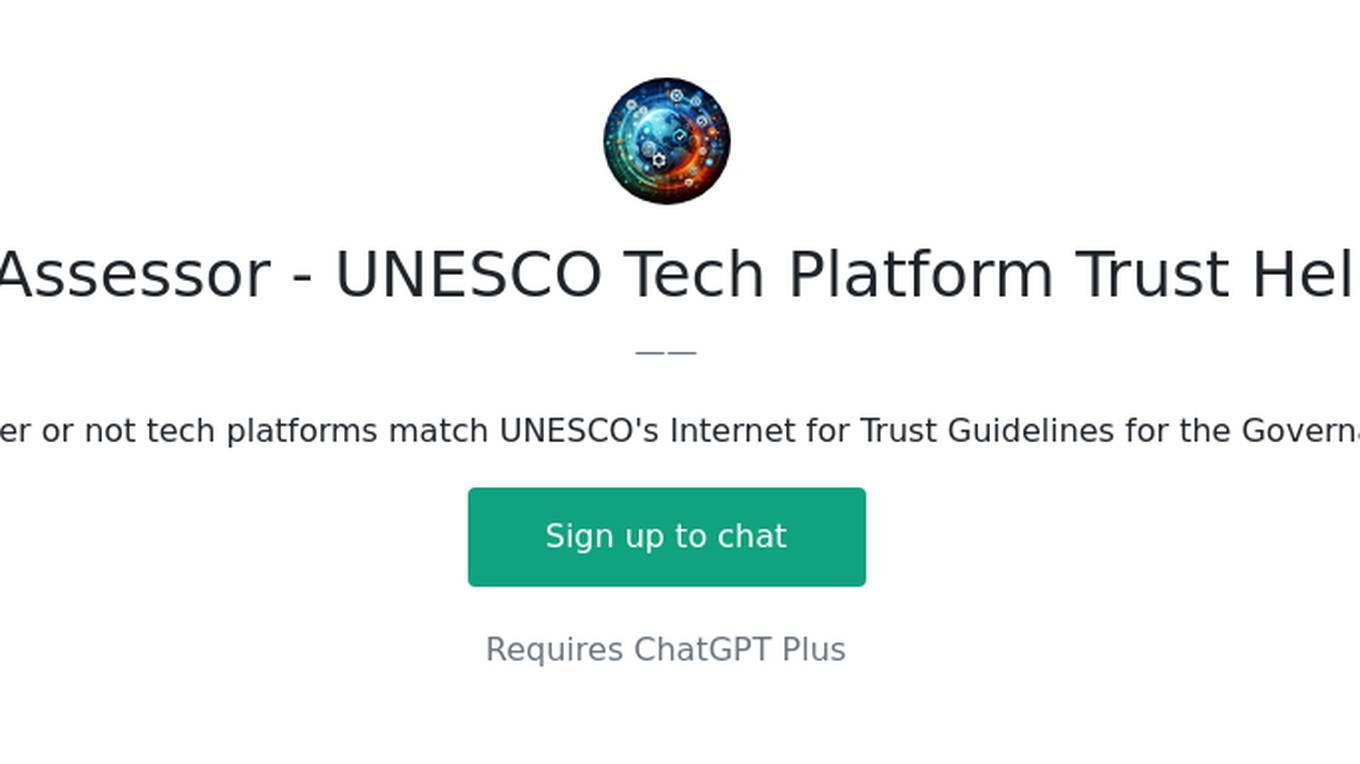
I4T Assessor - UNESCO Tech Platform Trust Helper
Helps you evaluate whether or not tech platforms match UNESCO's Internet for Trust Guidelines for the Governance of Digital Platforms
